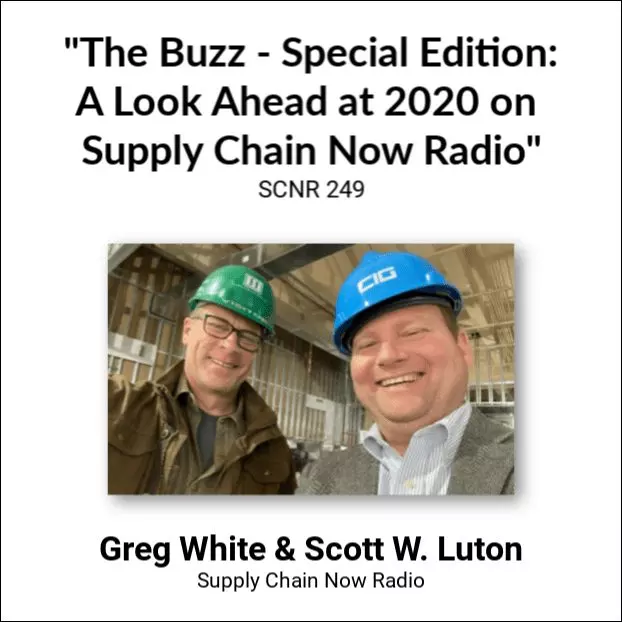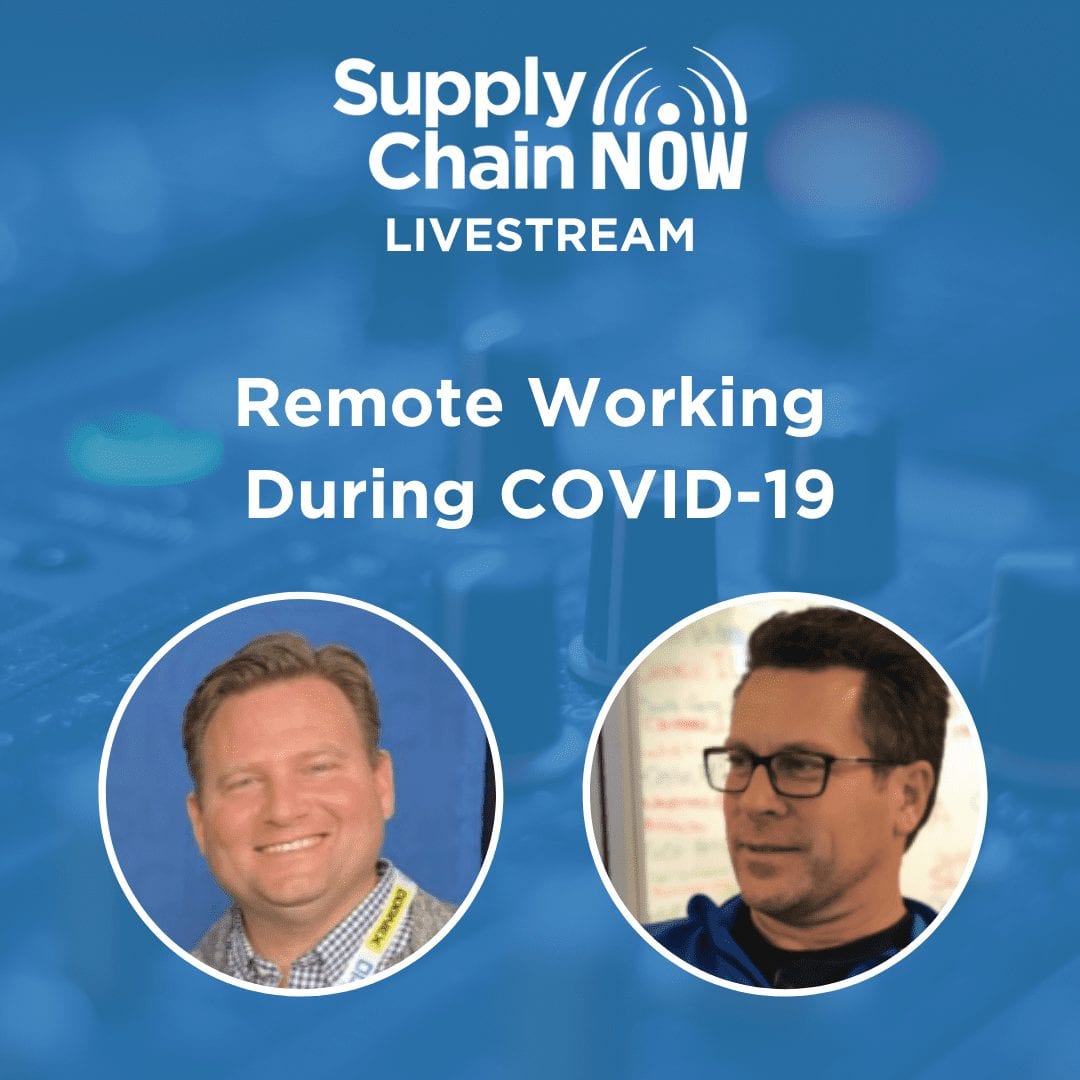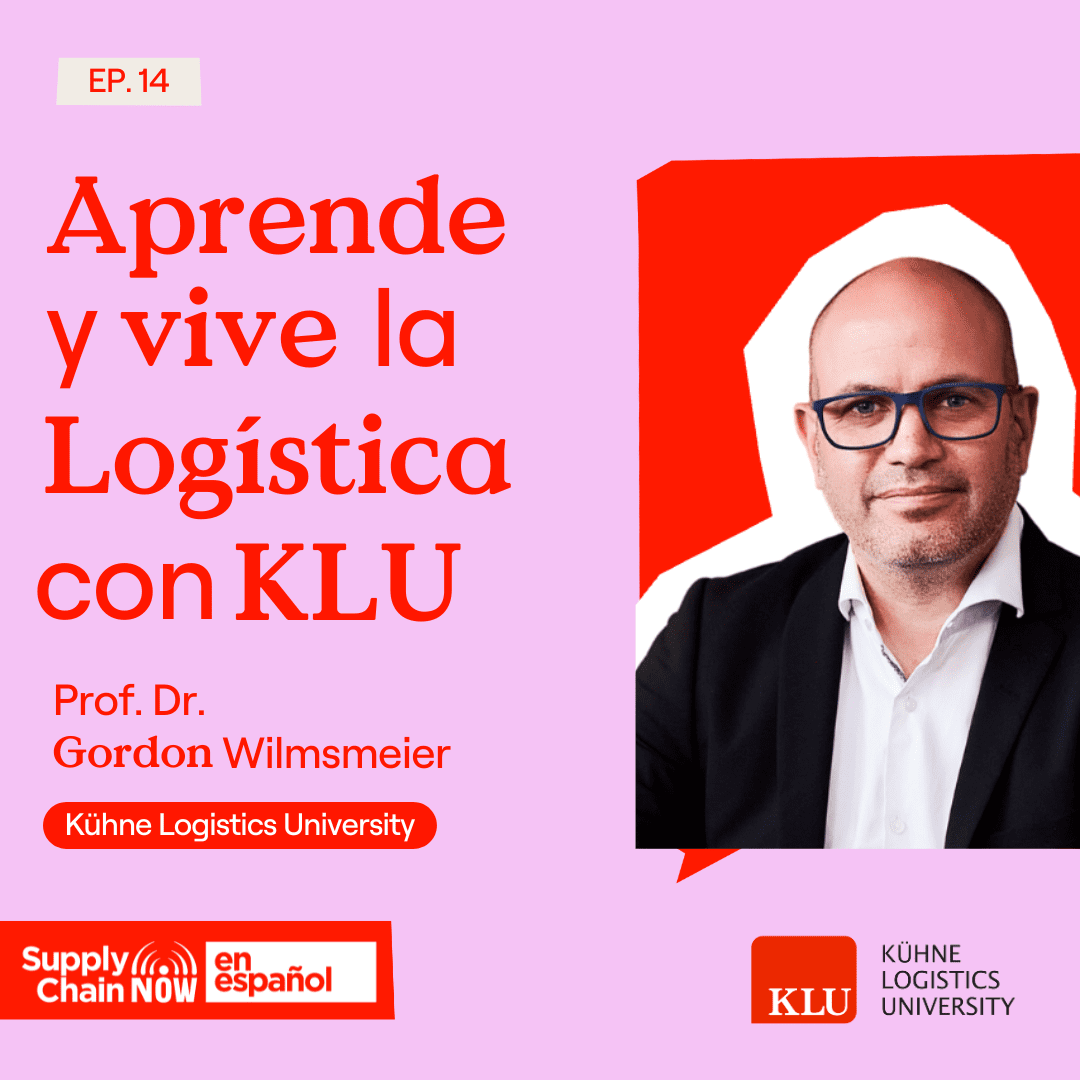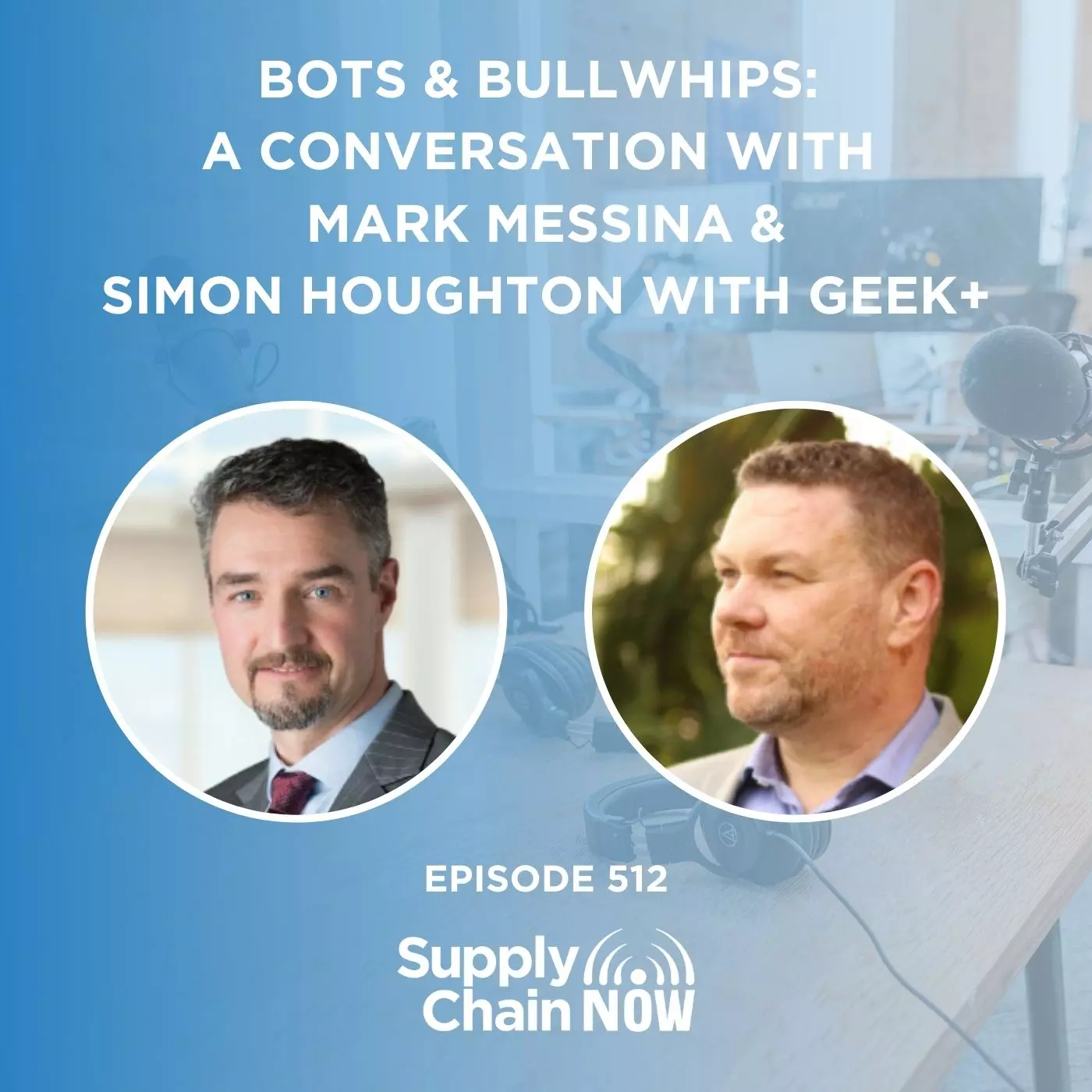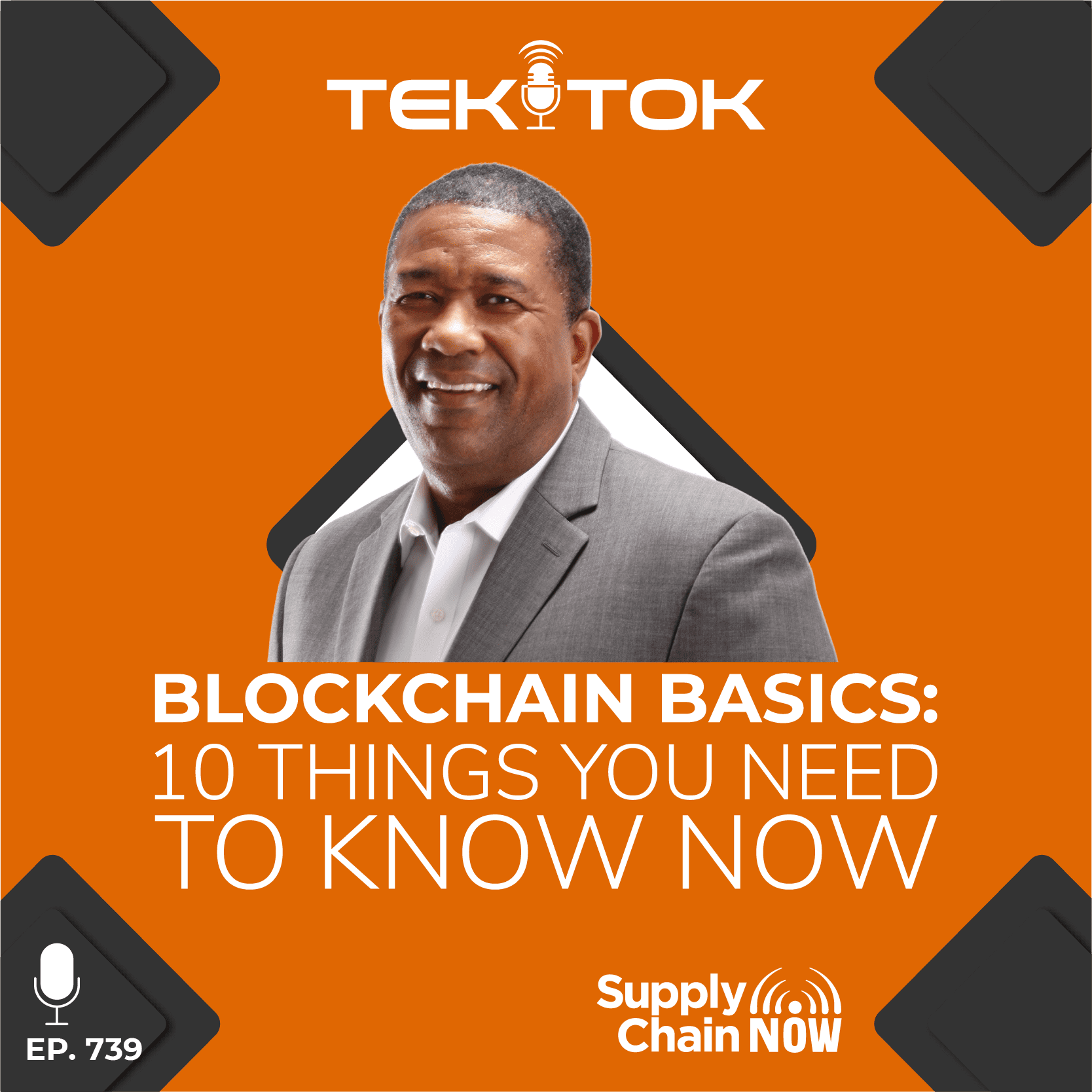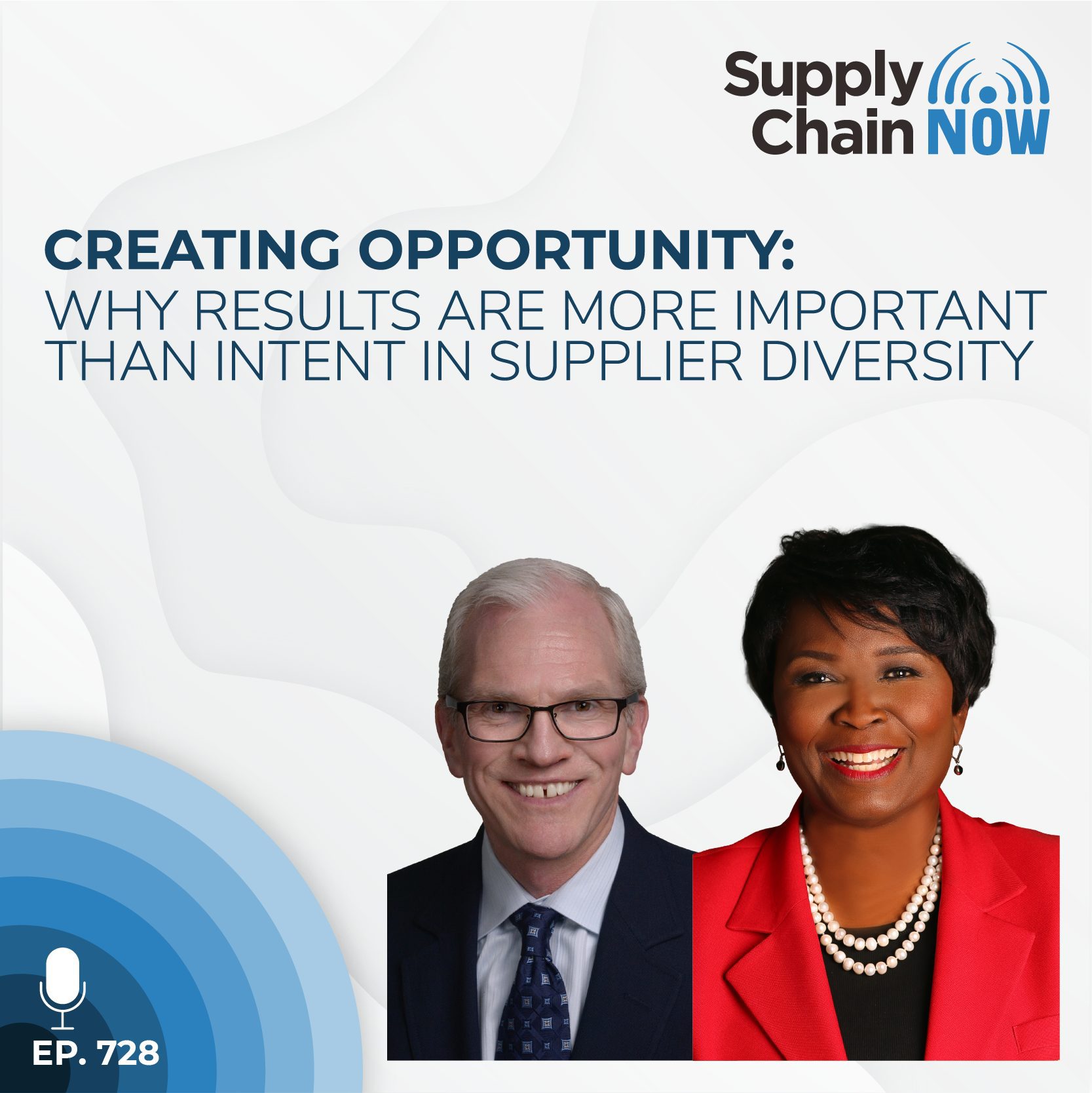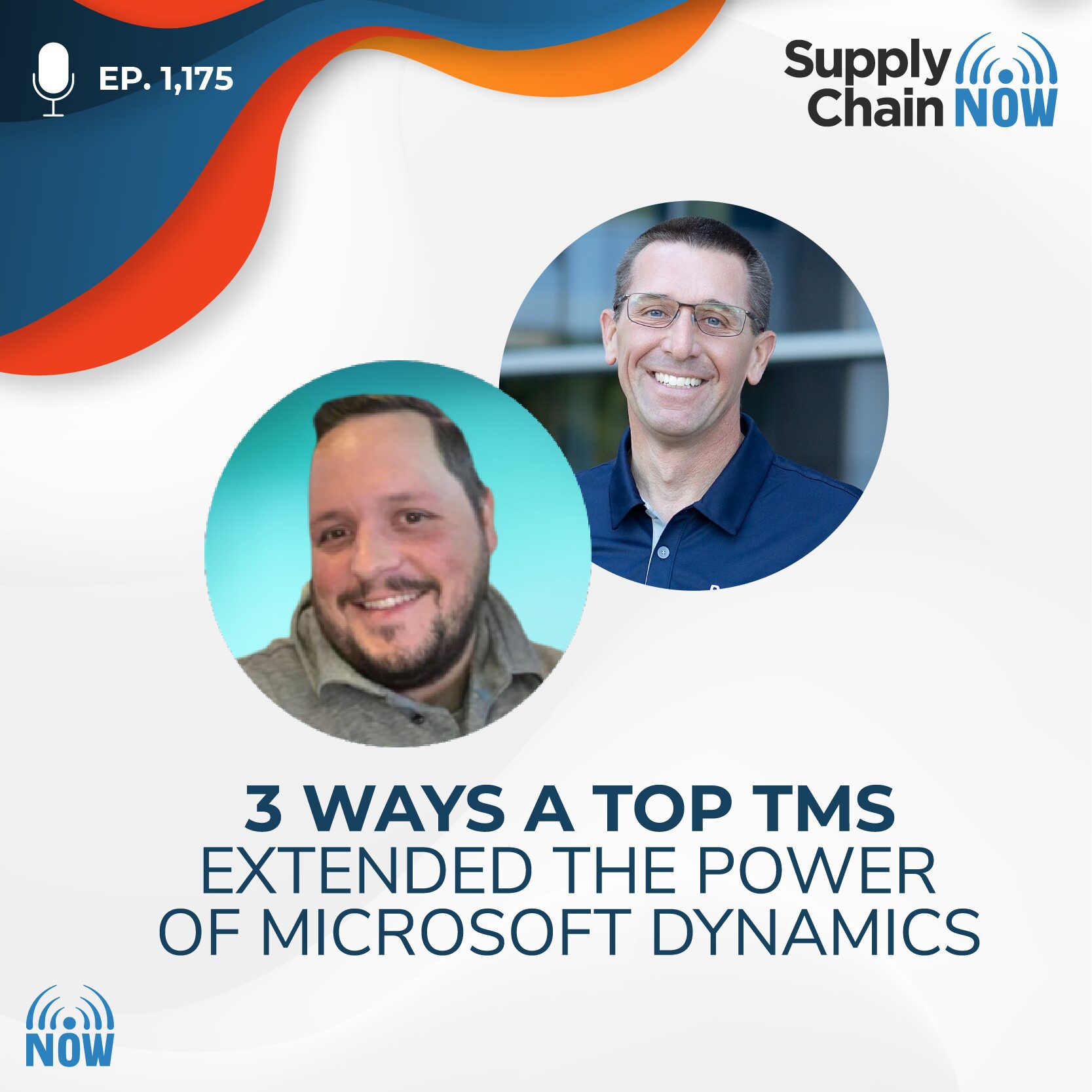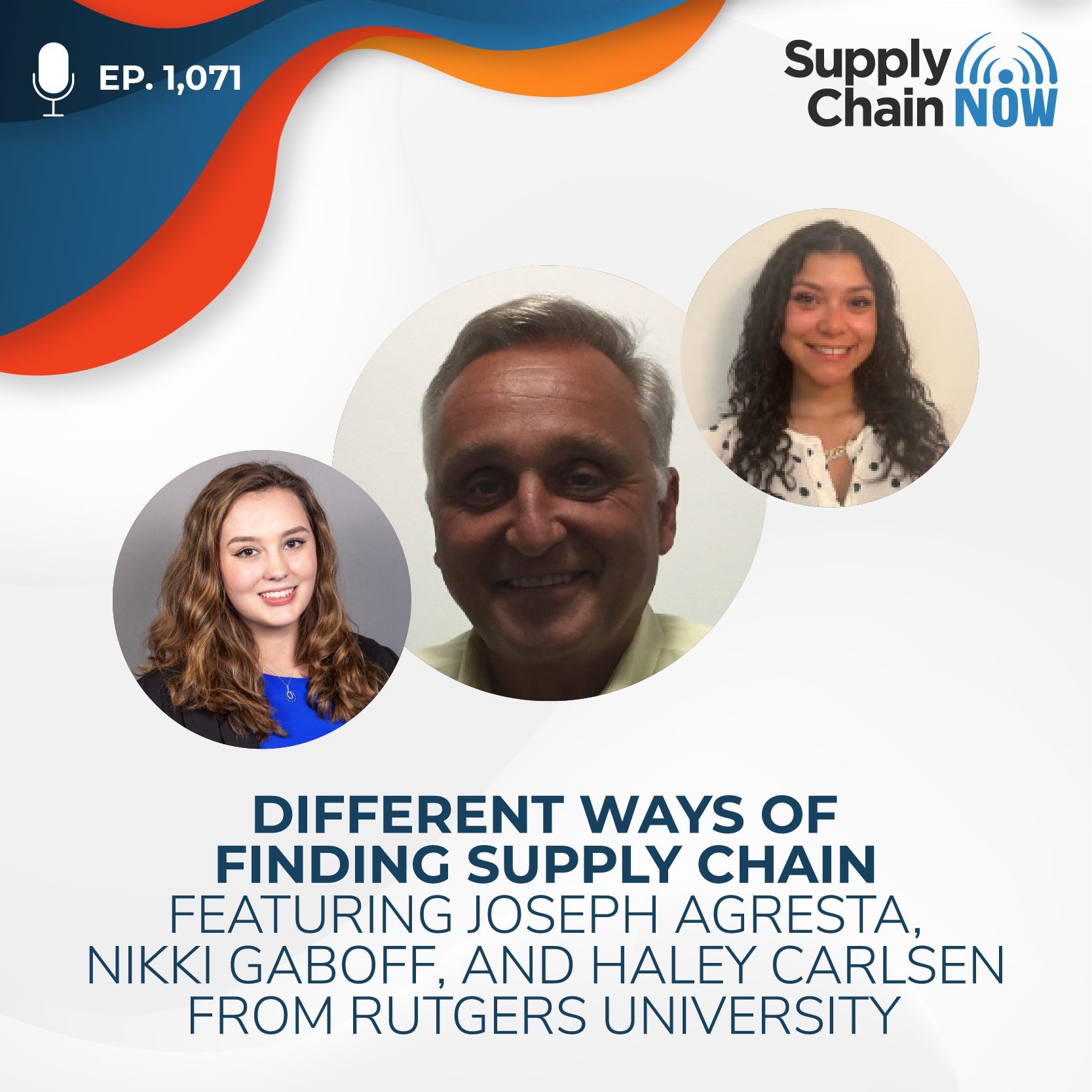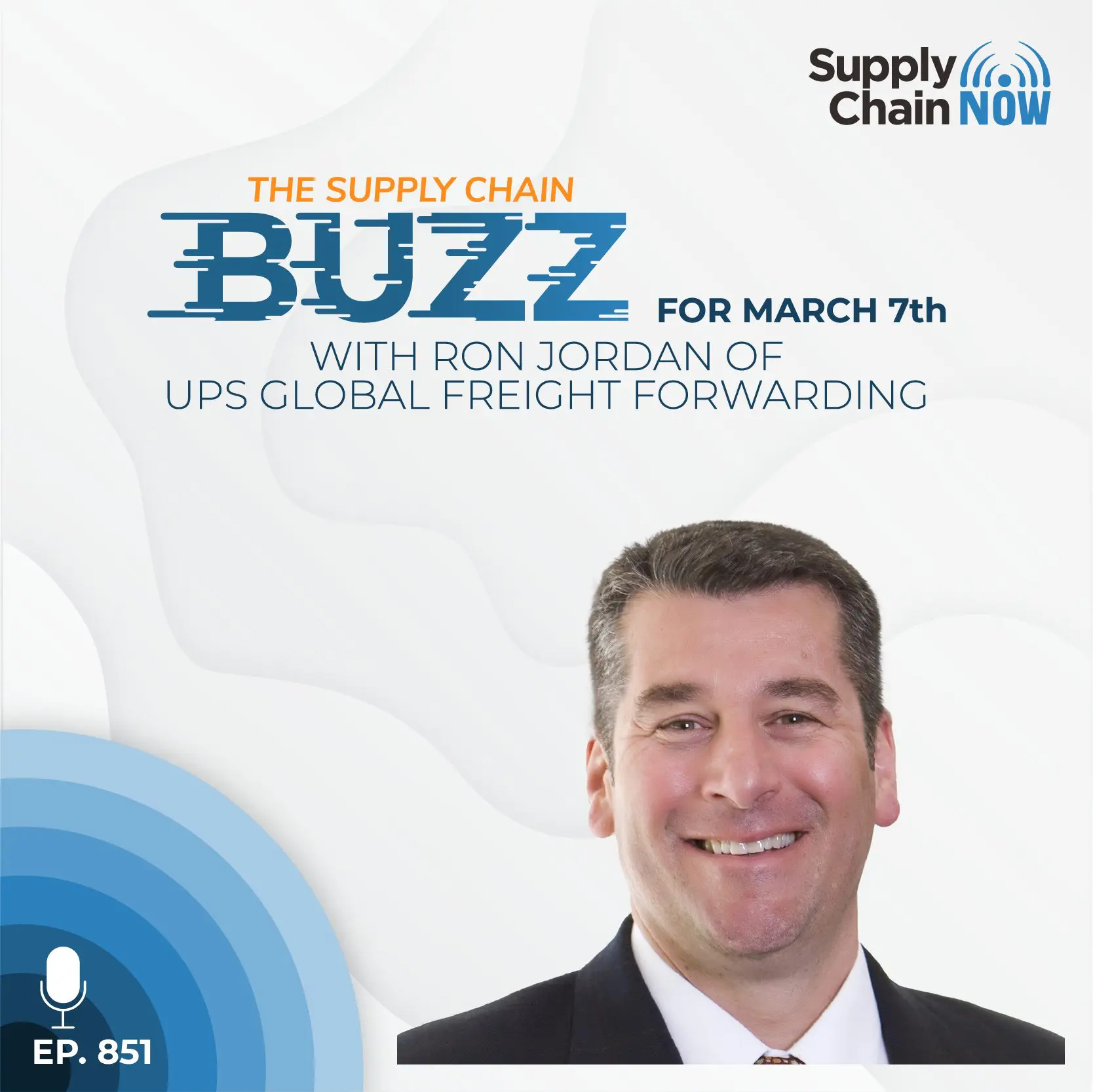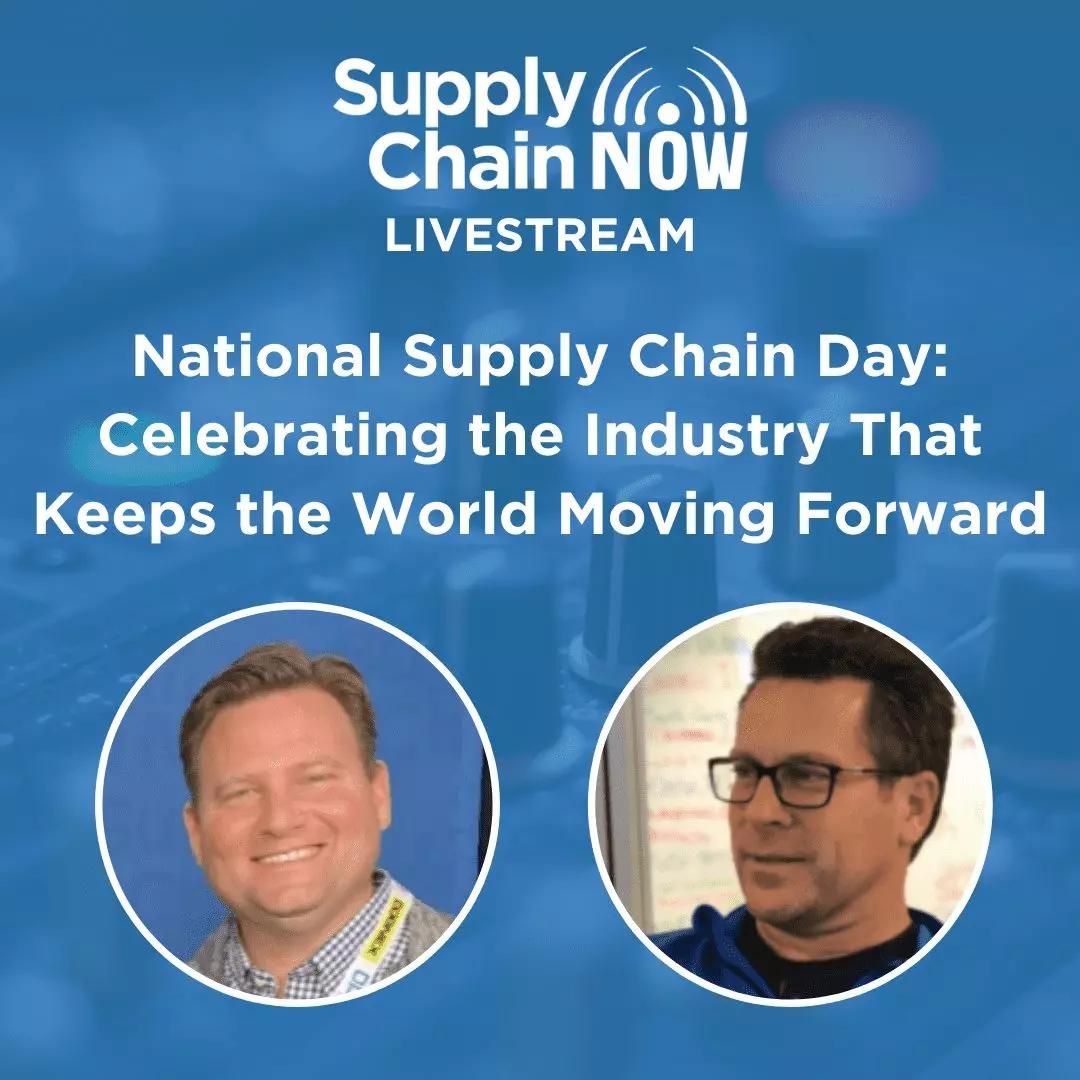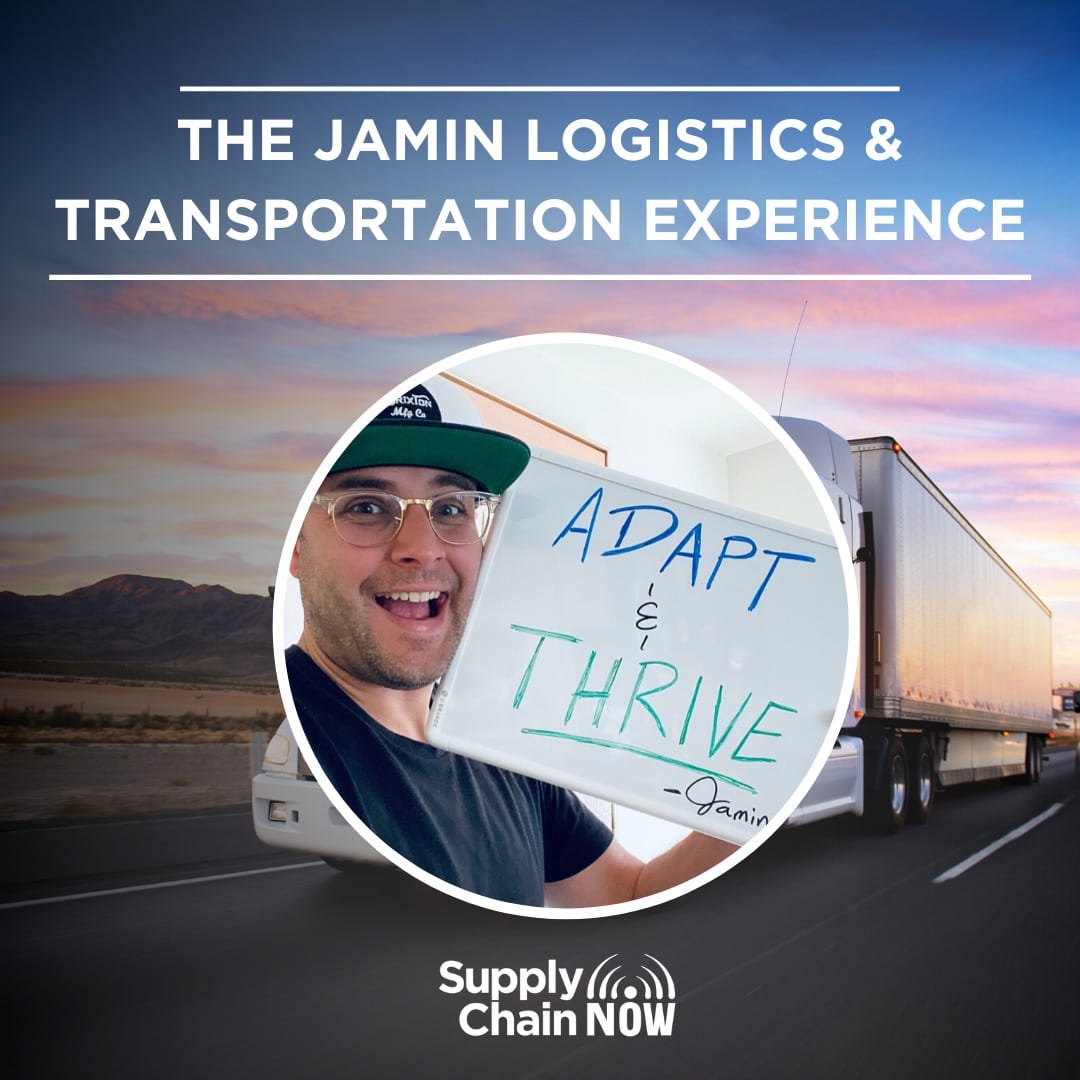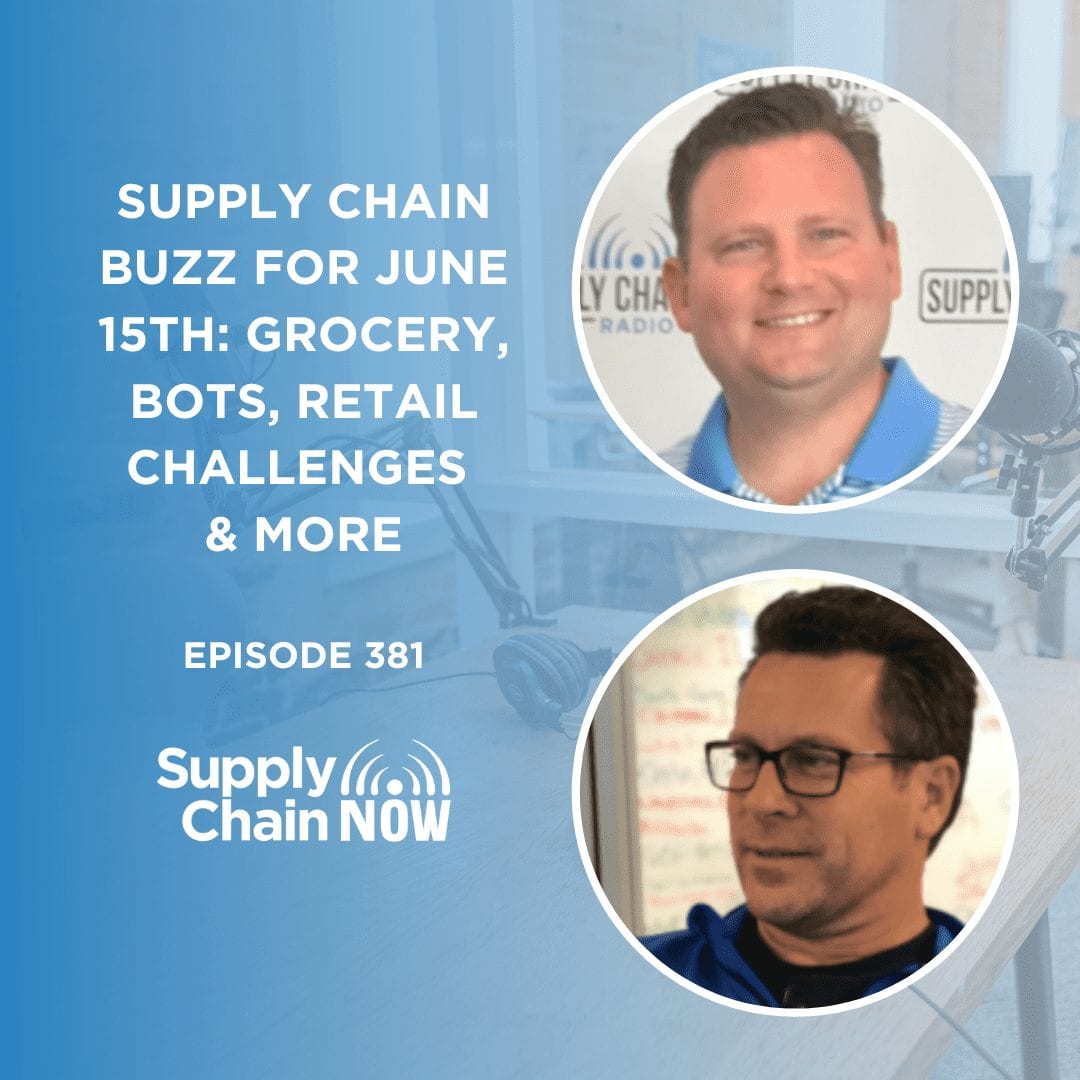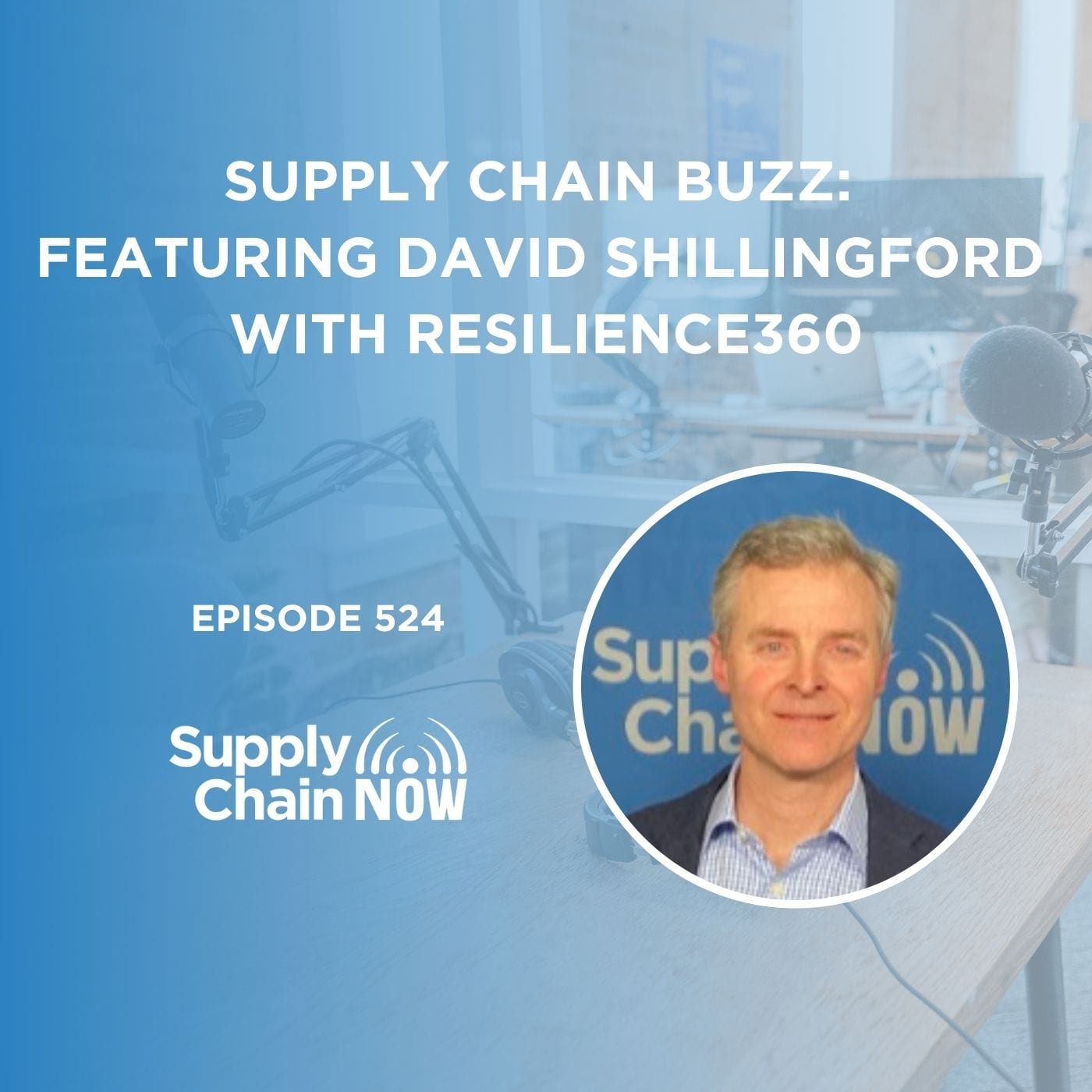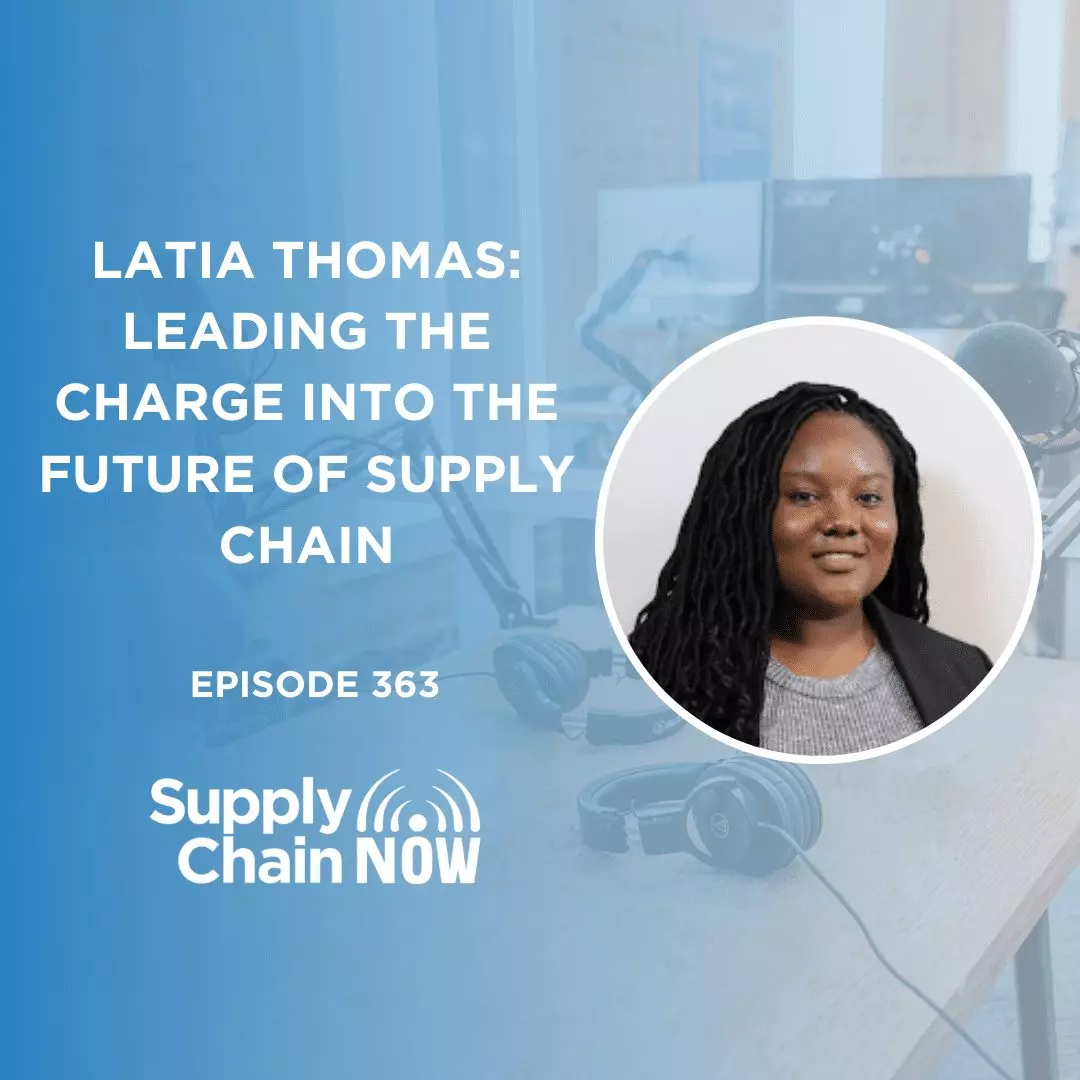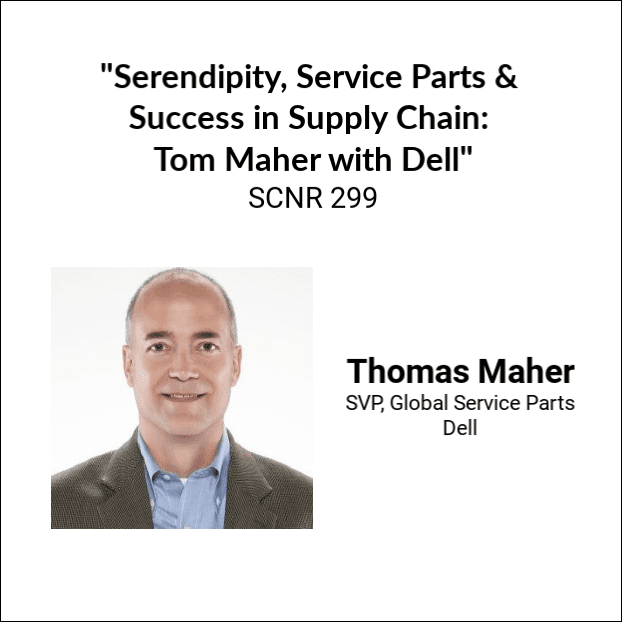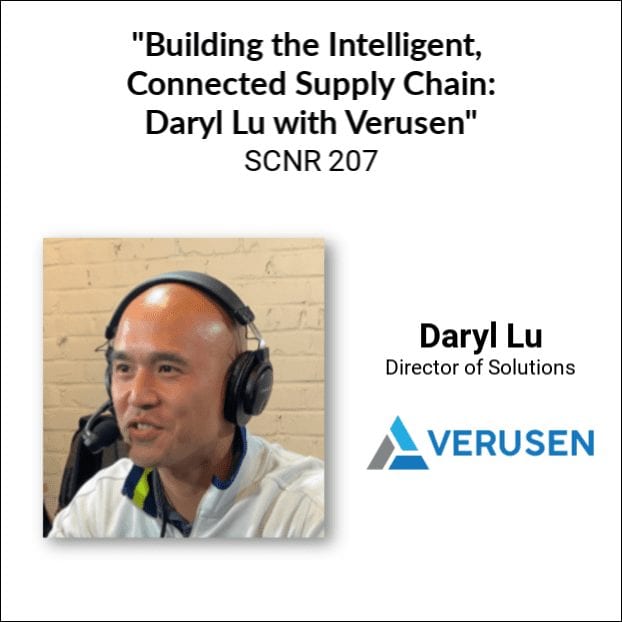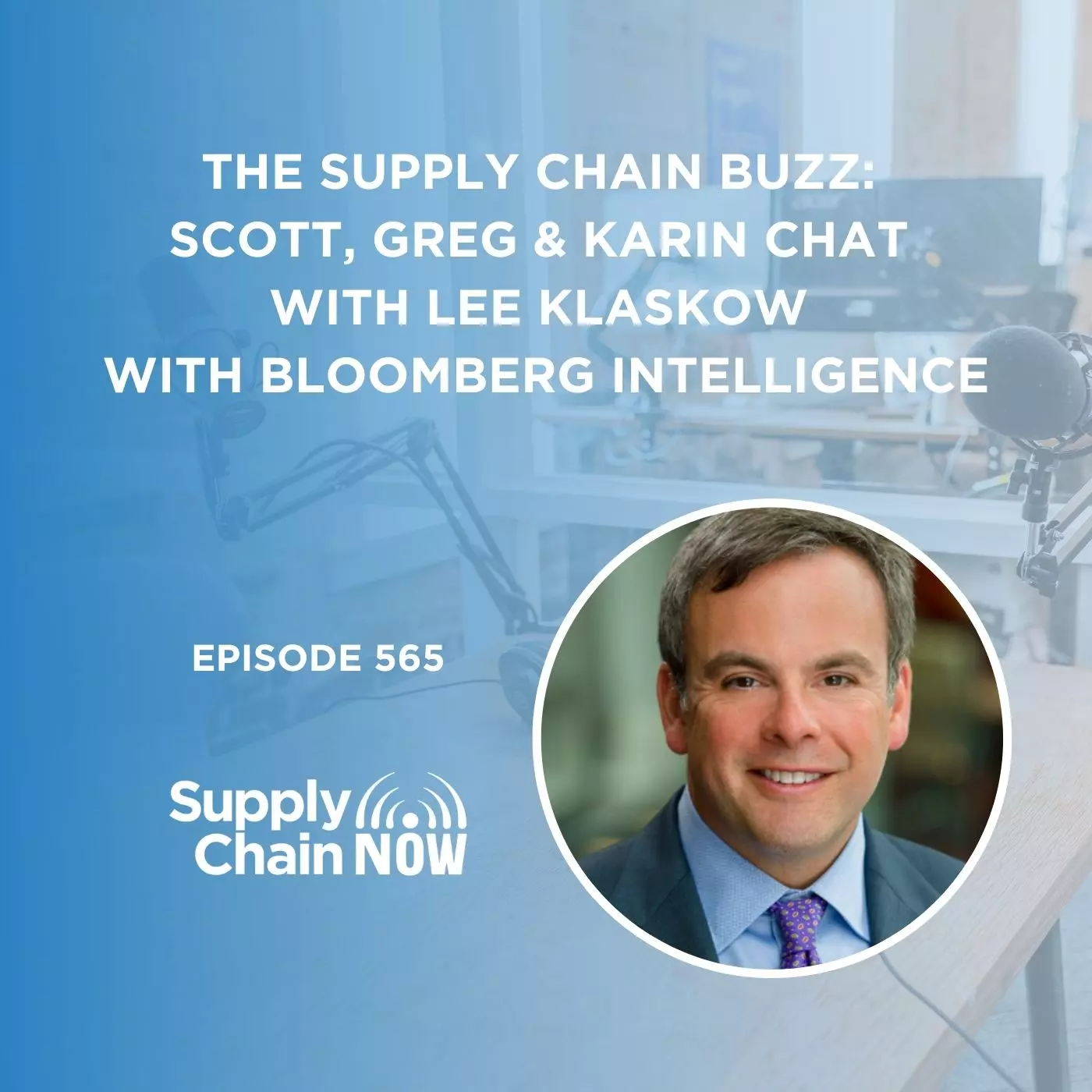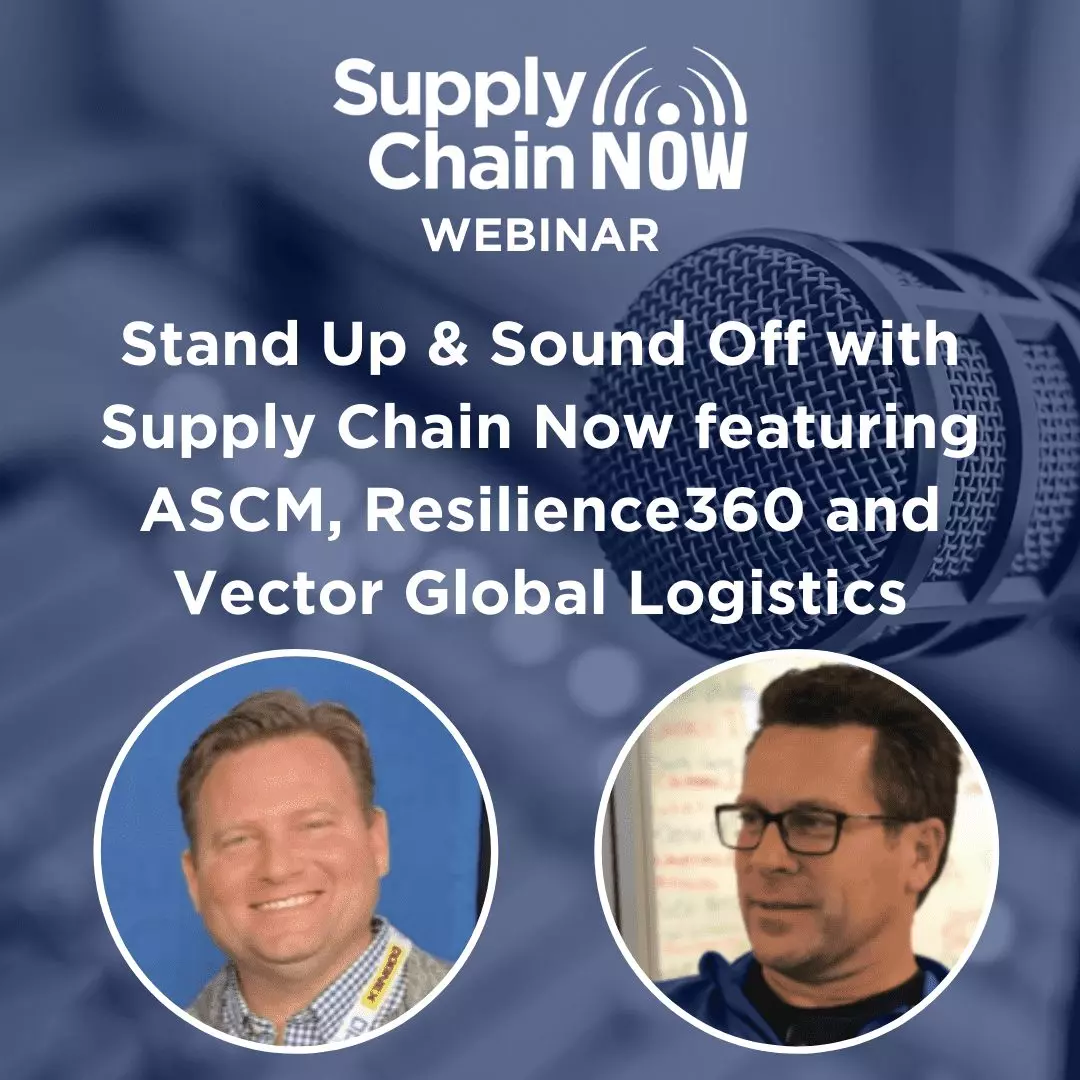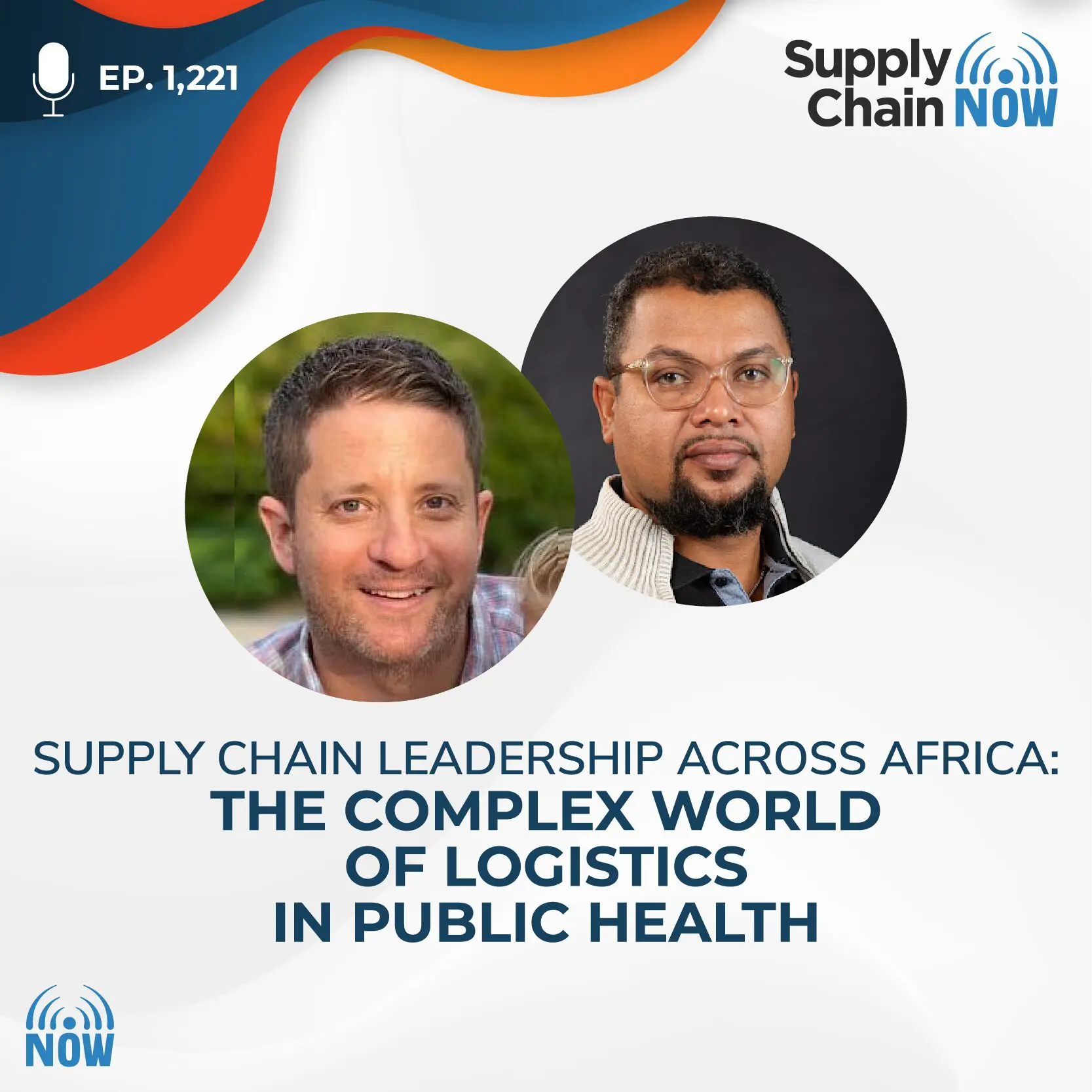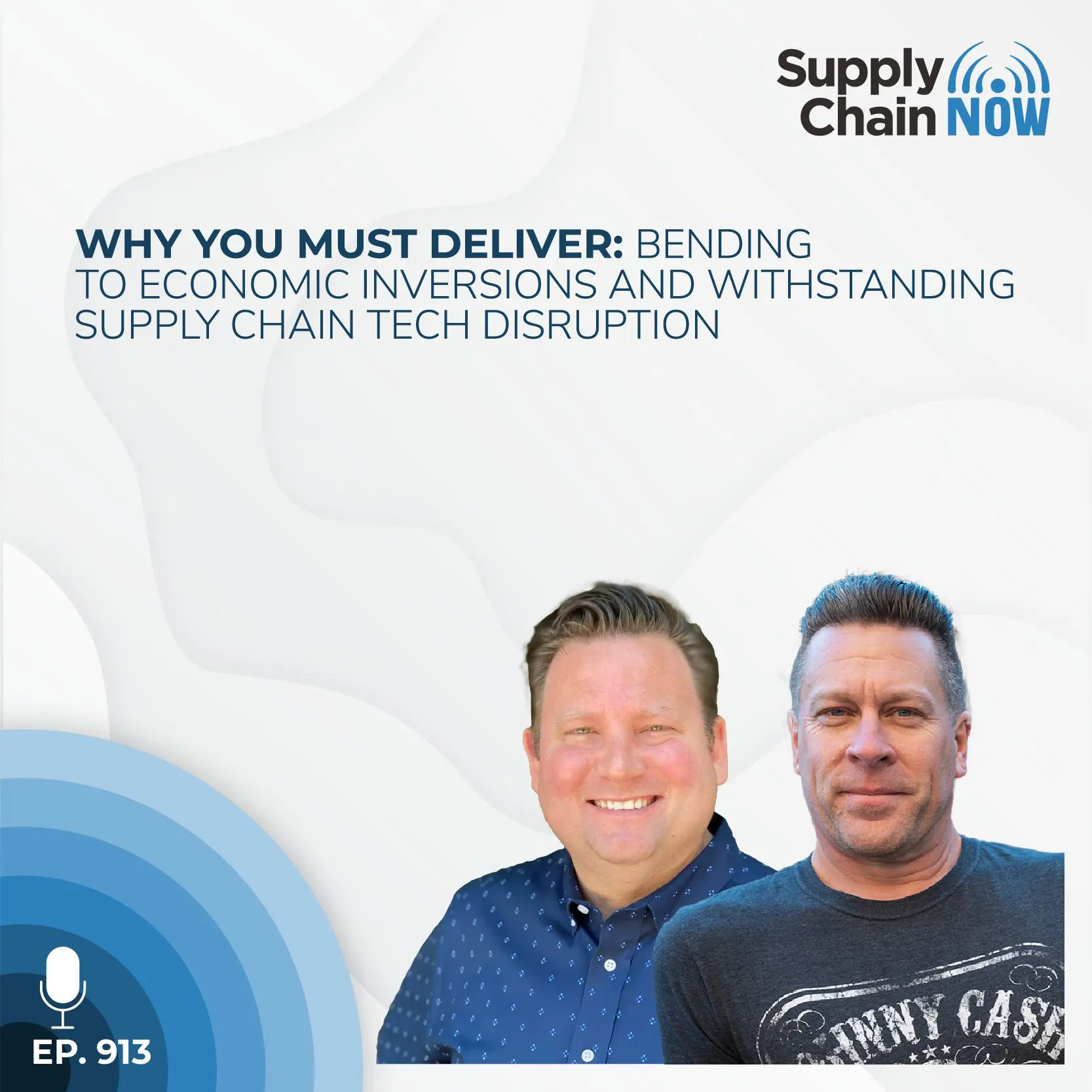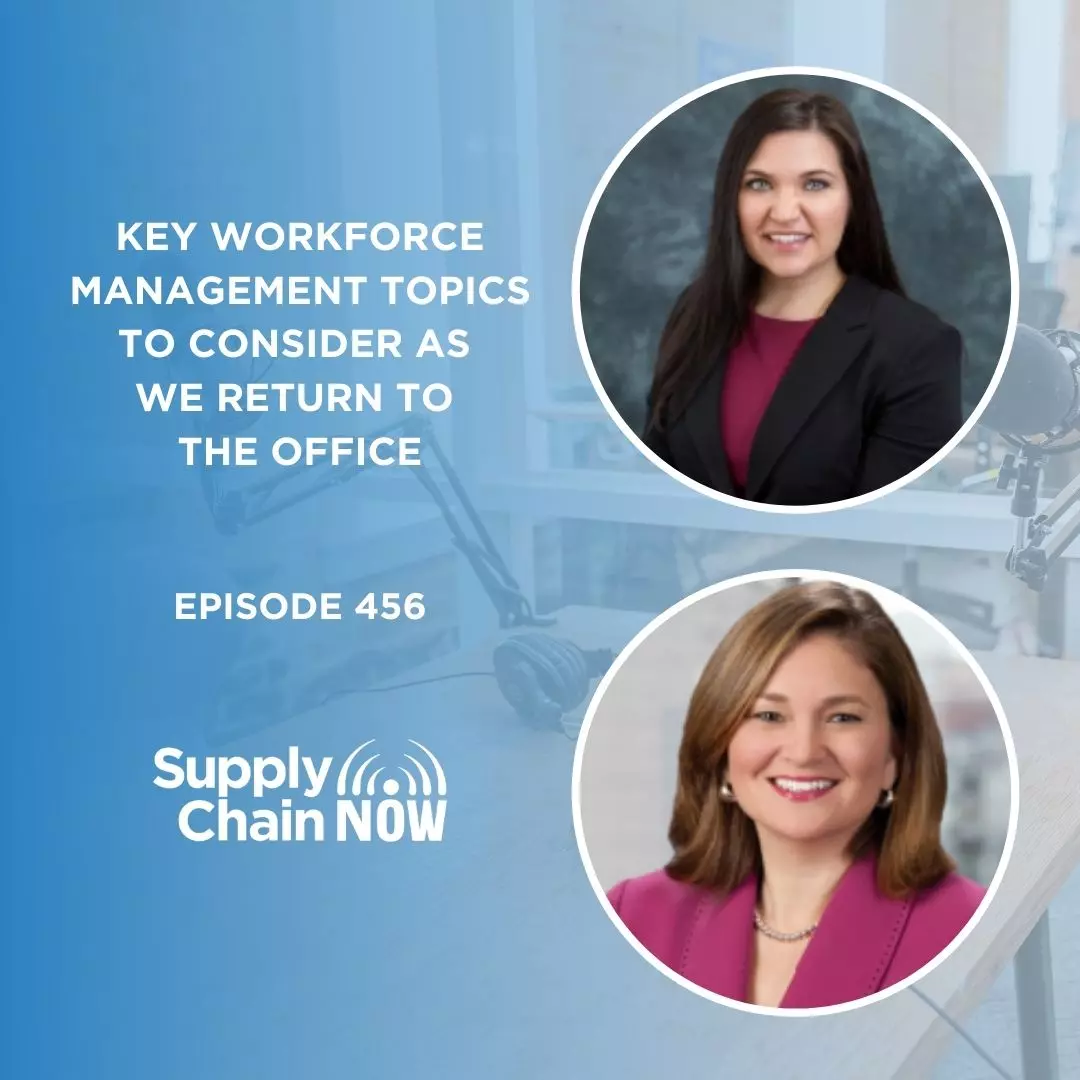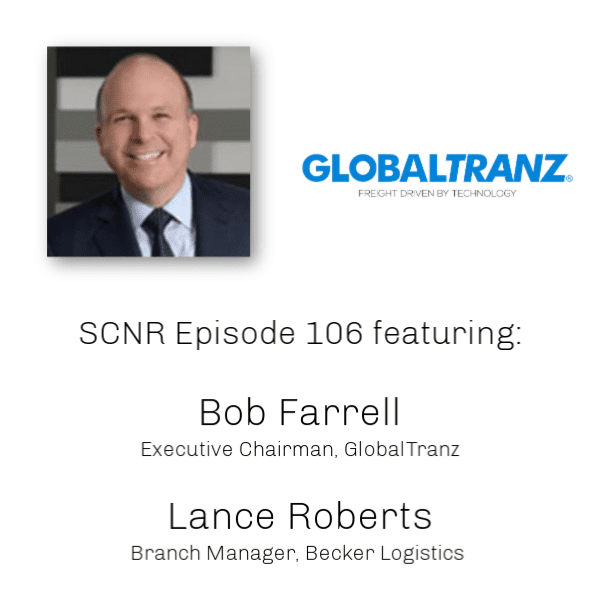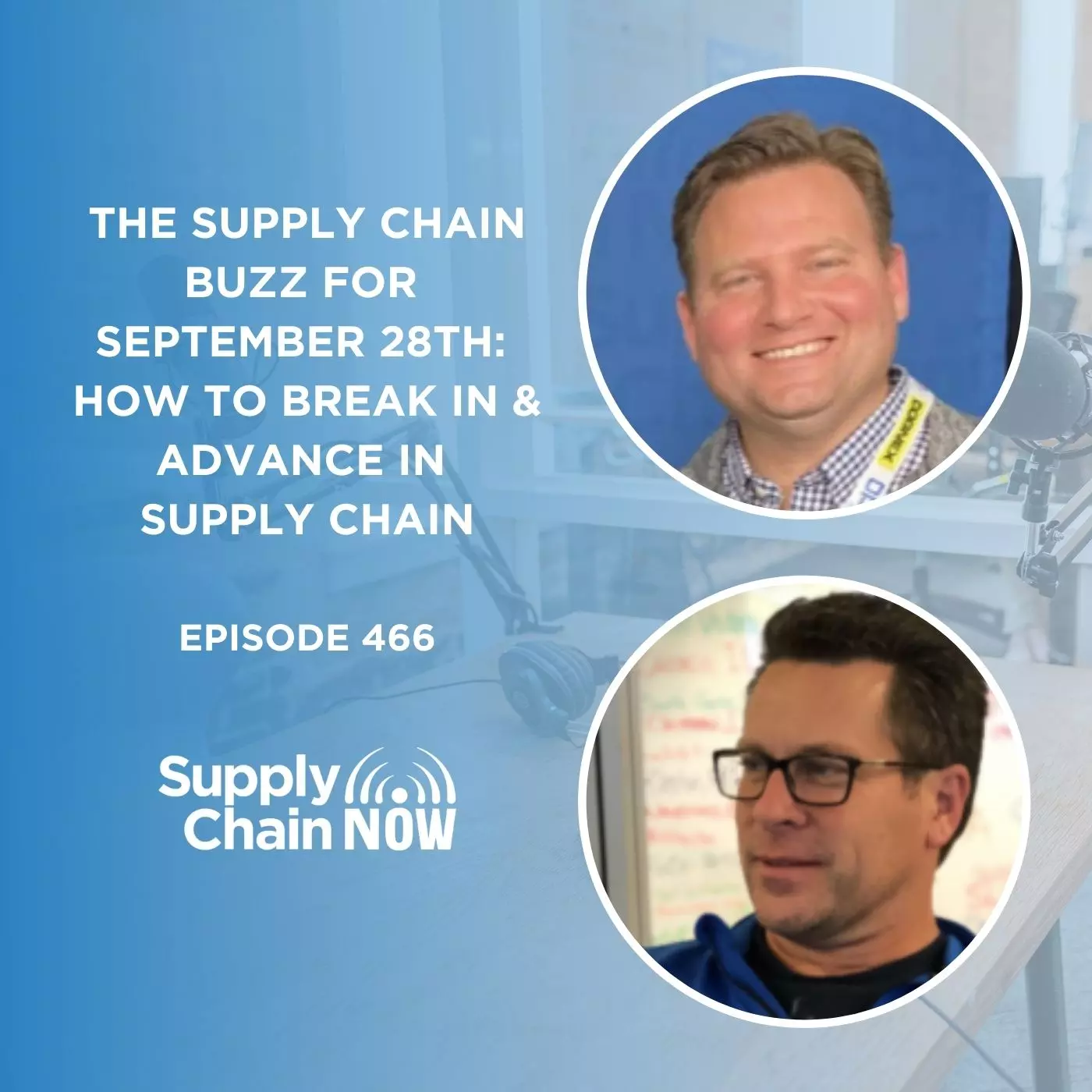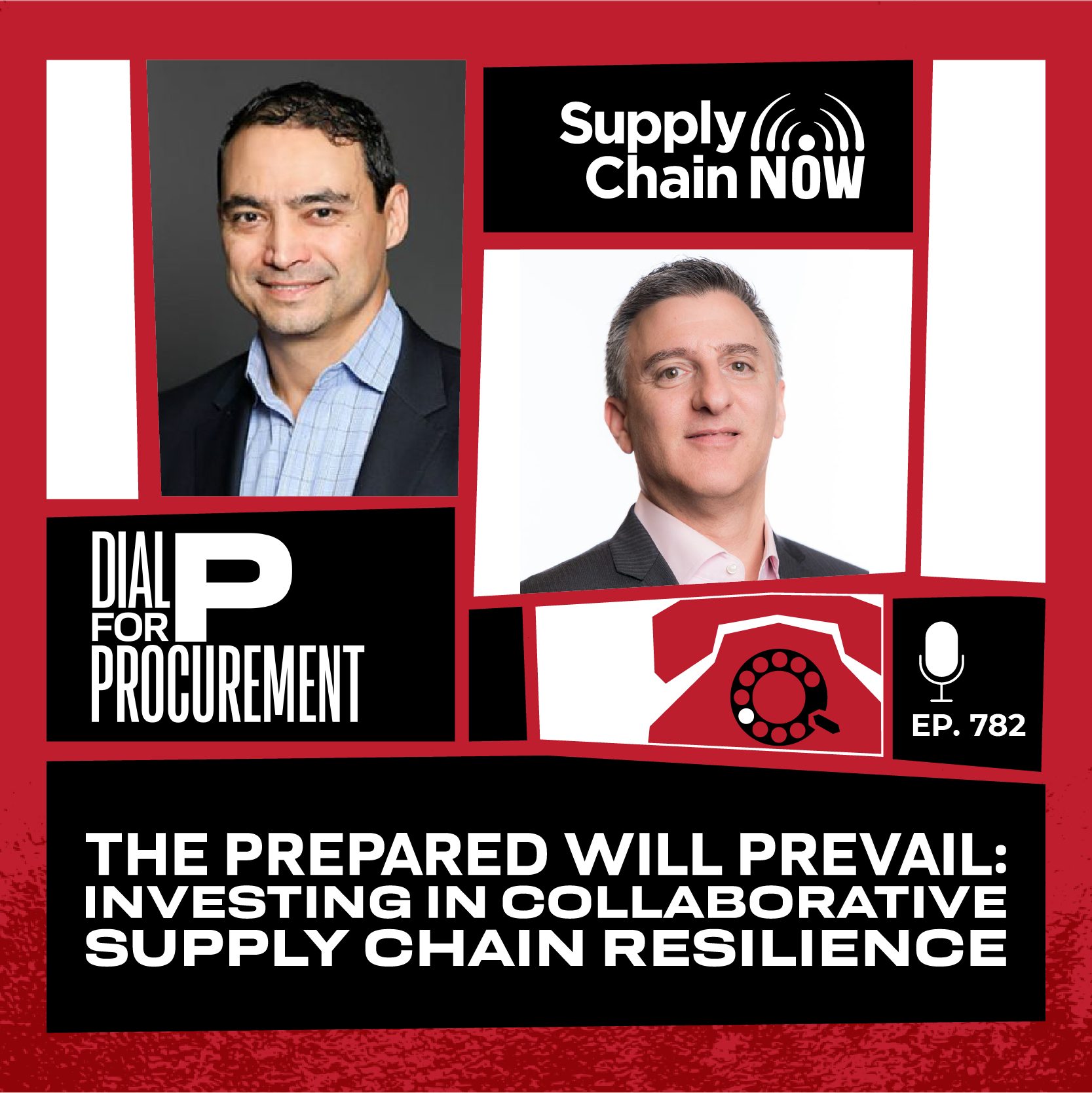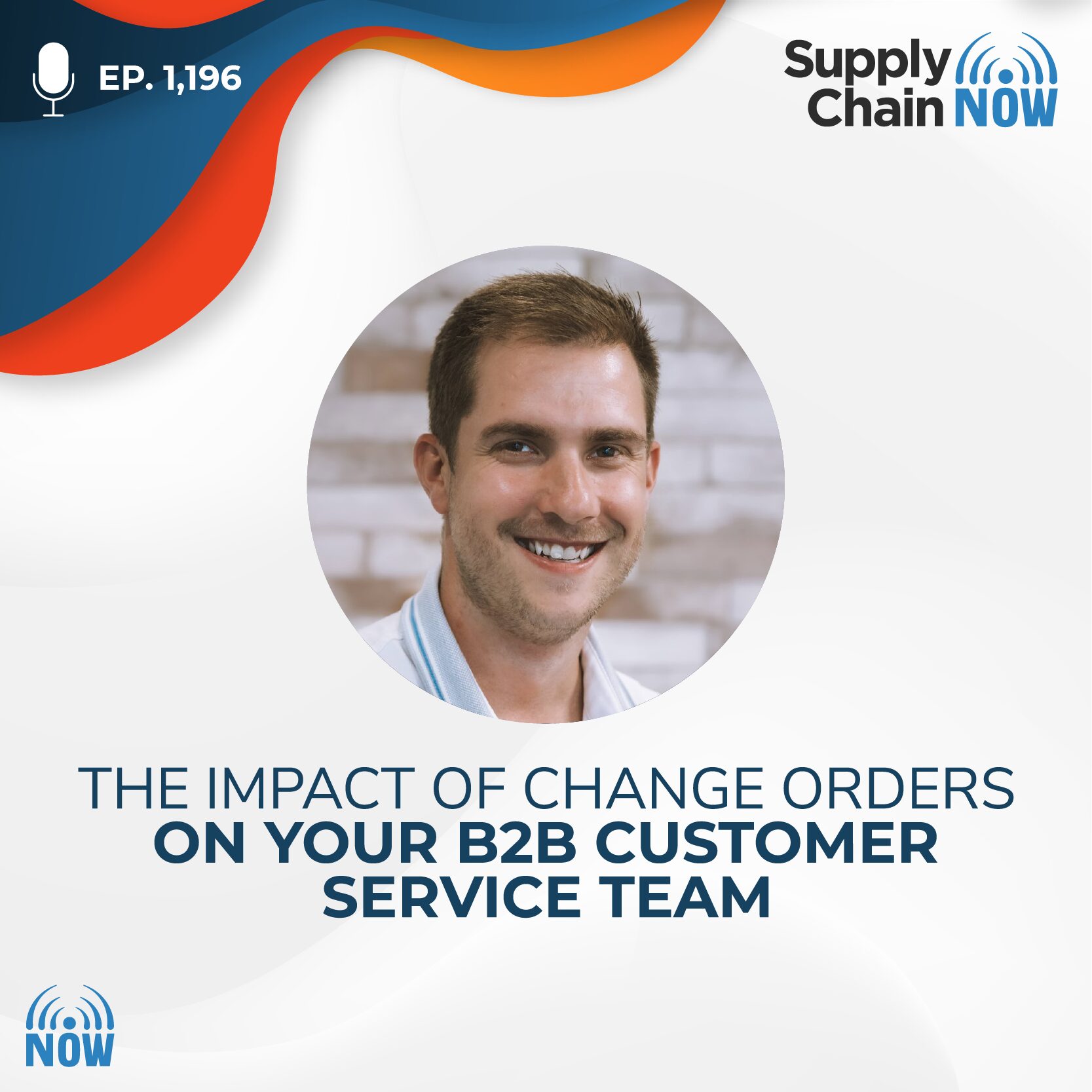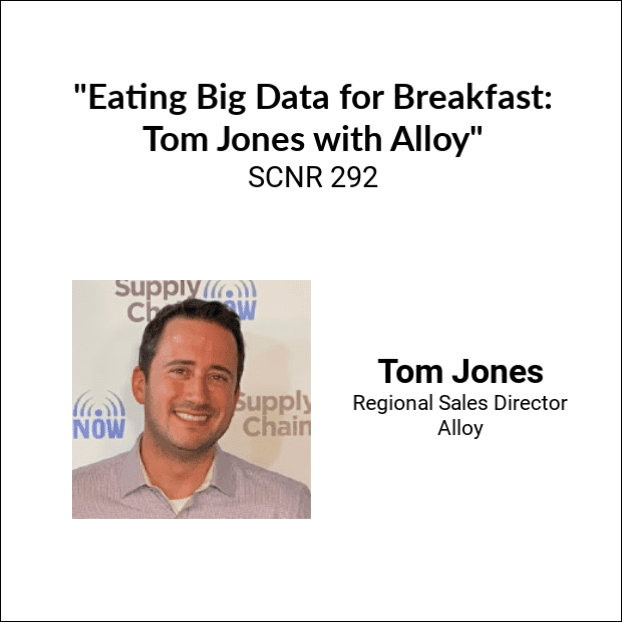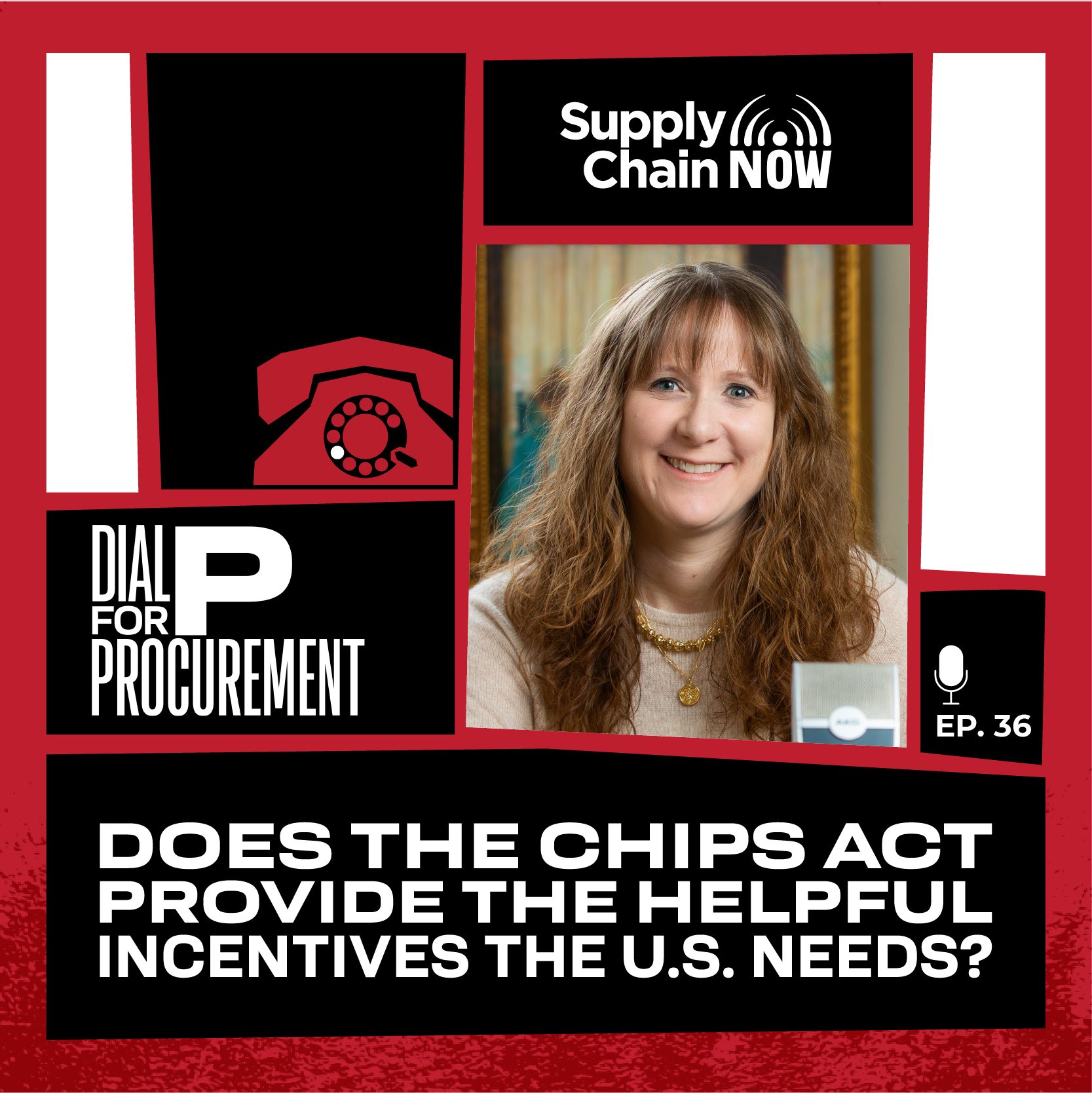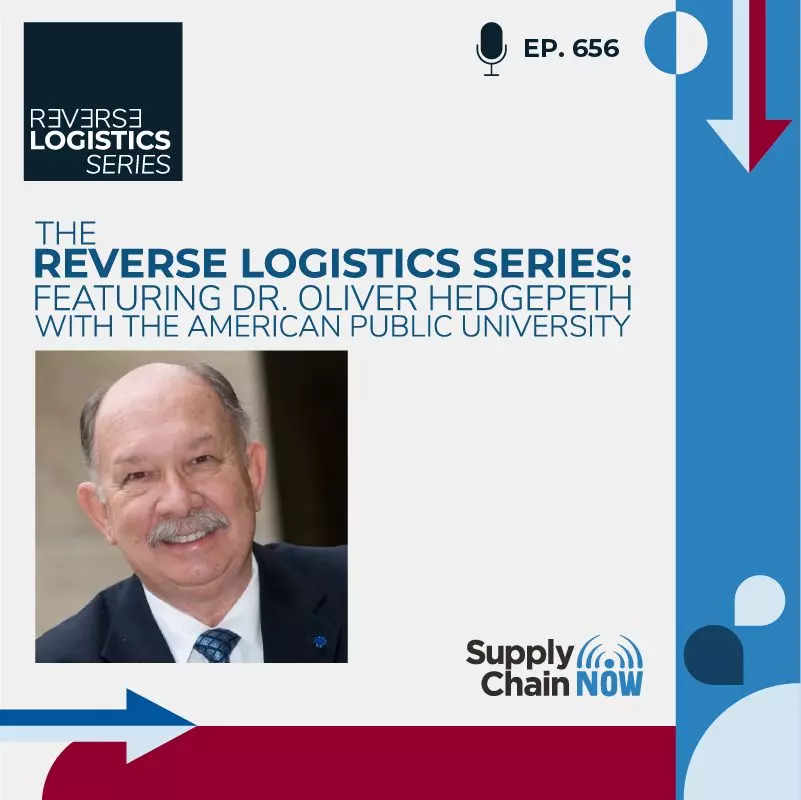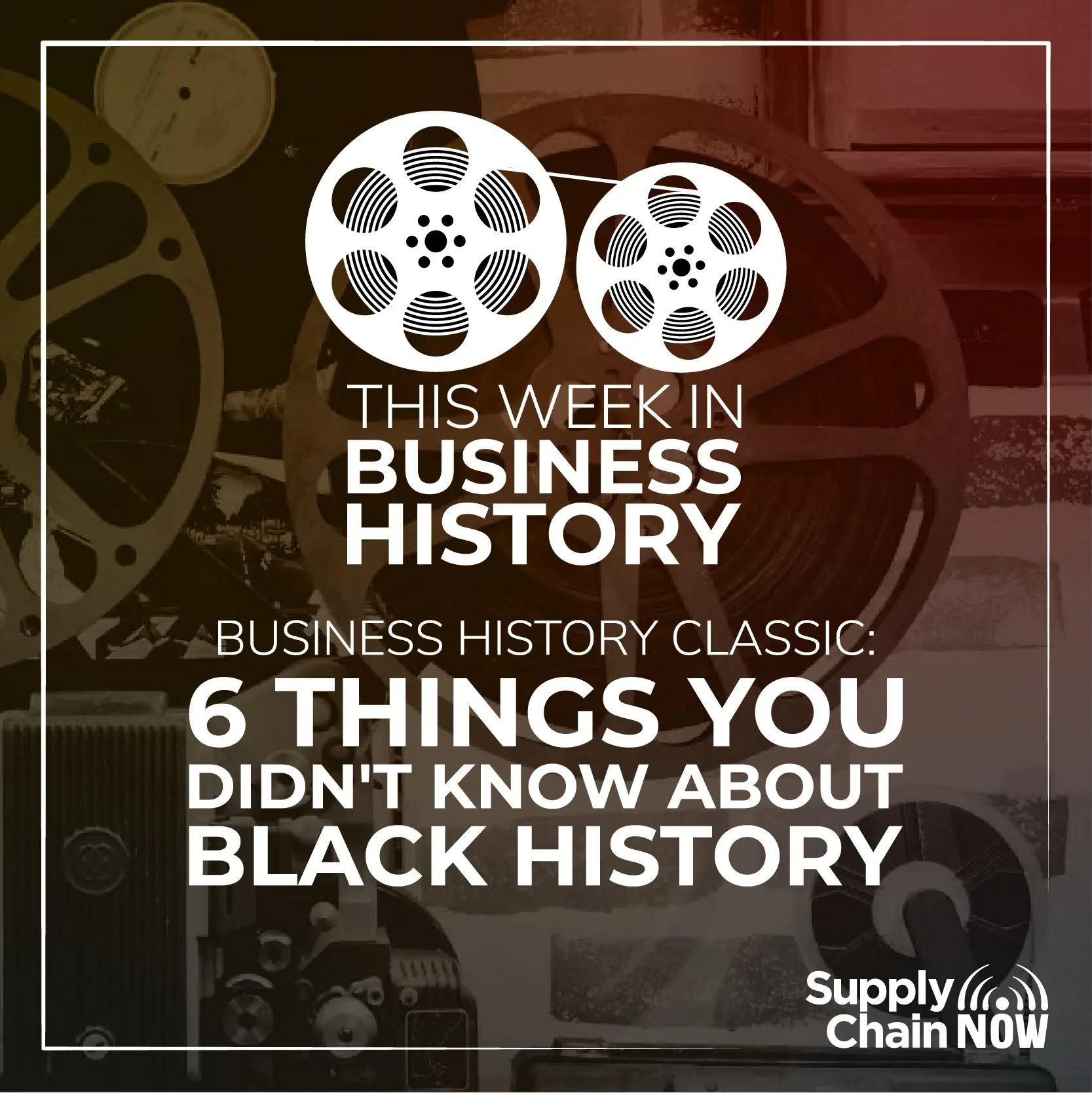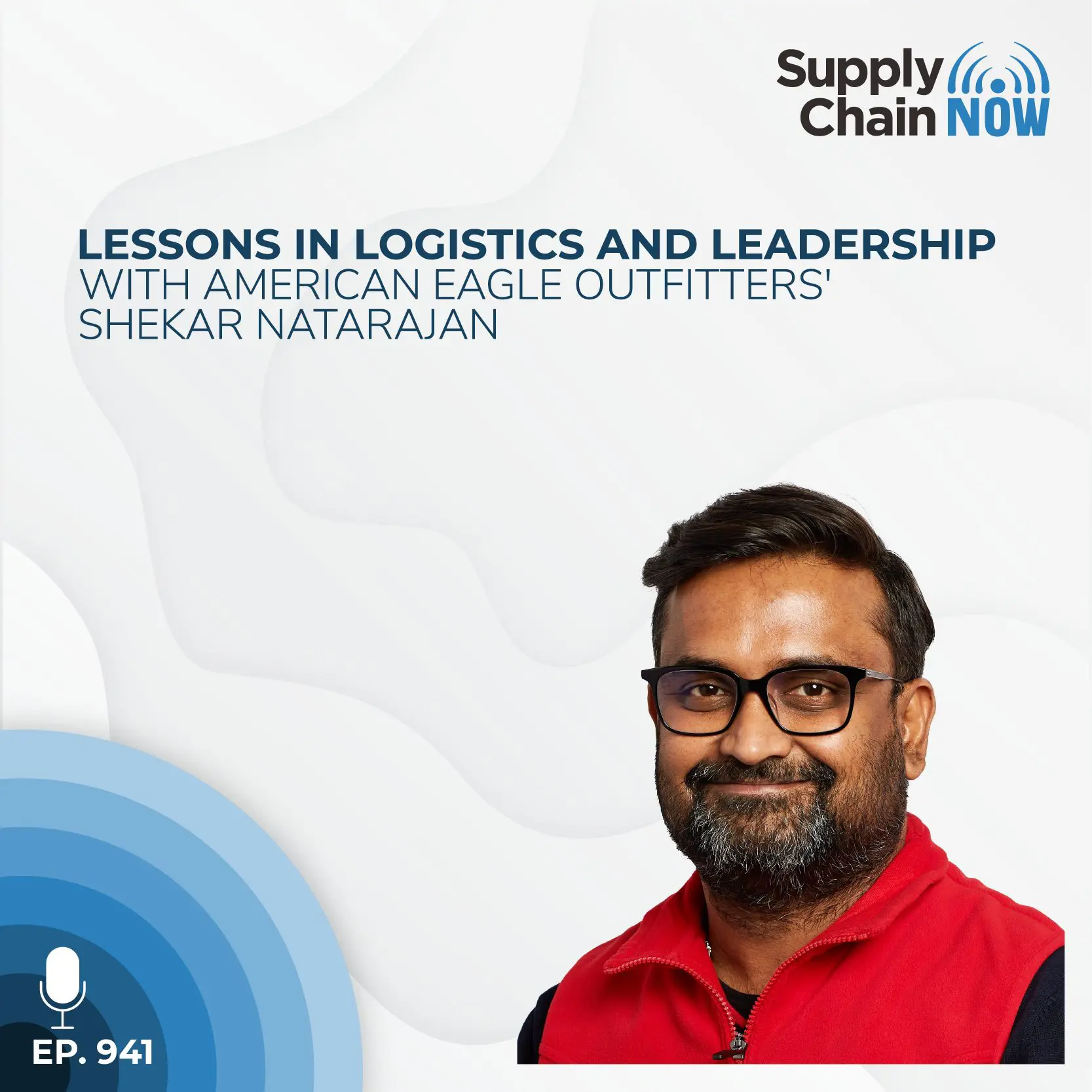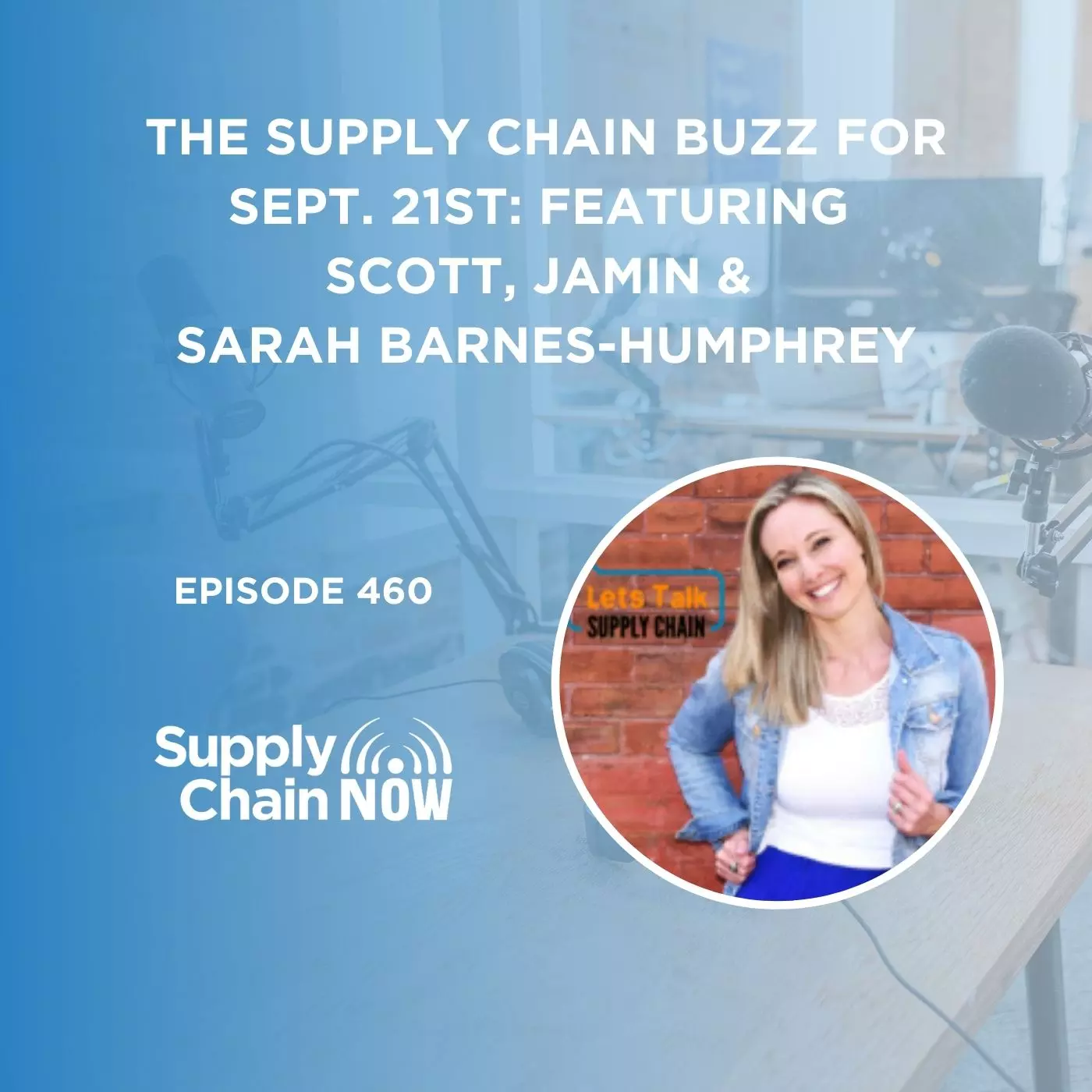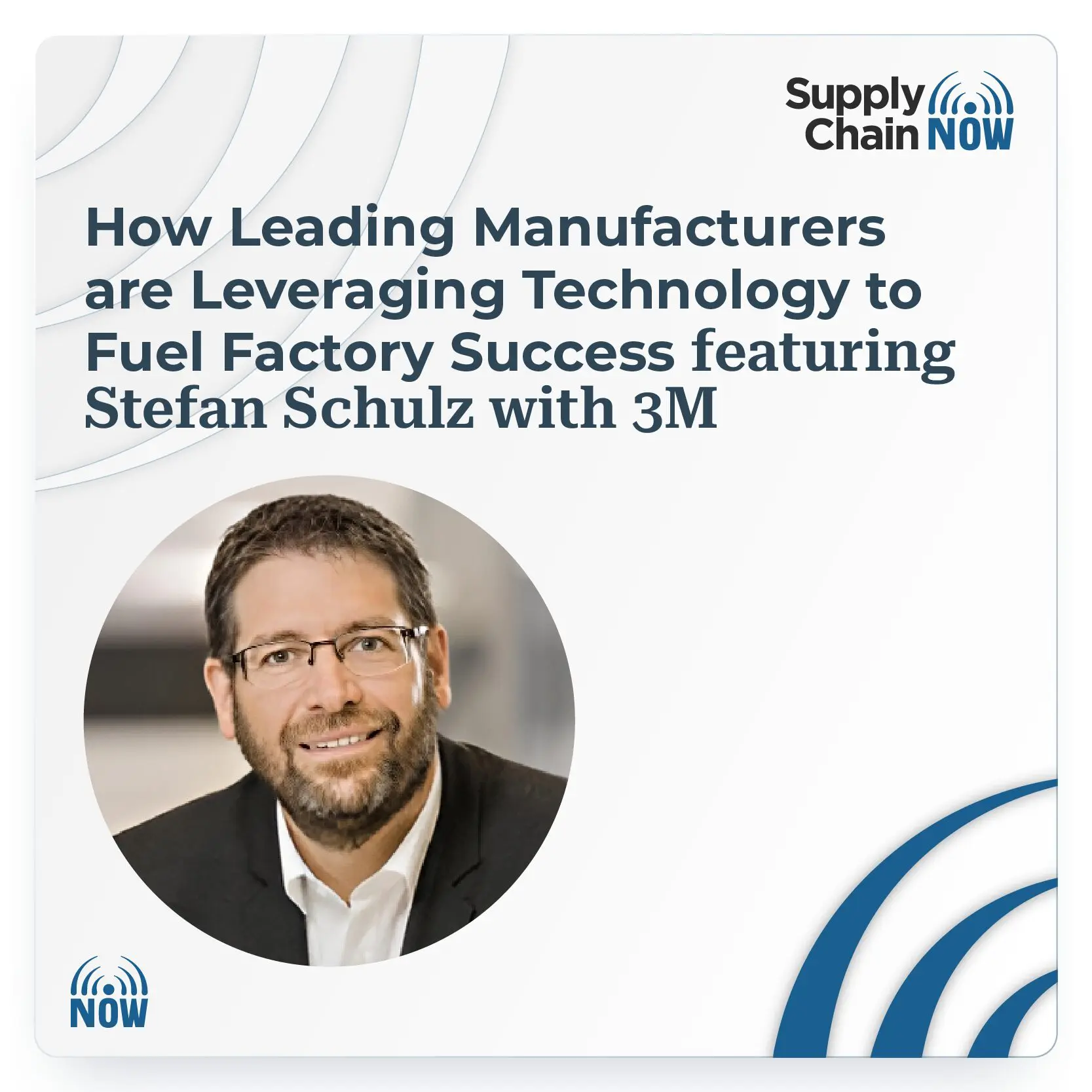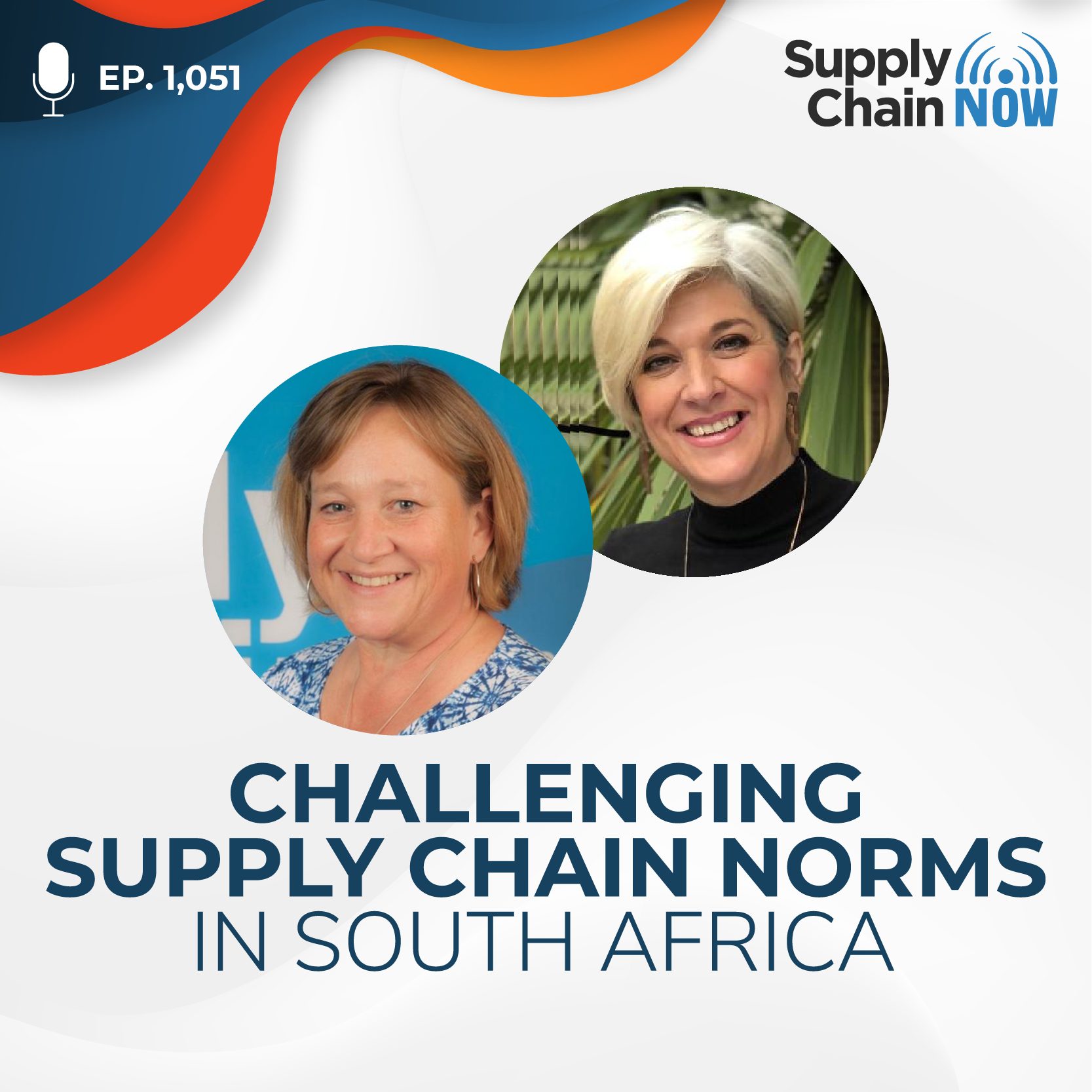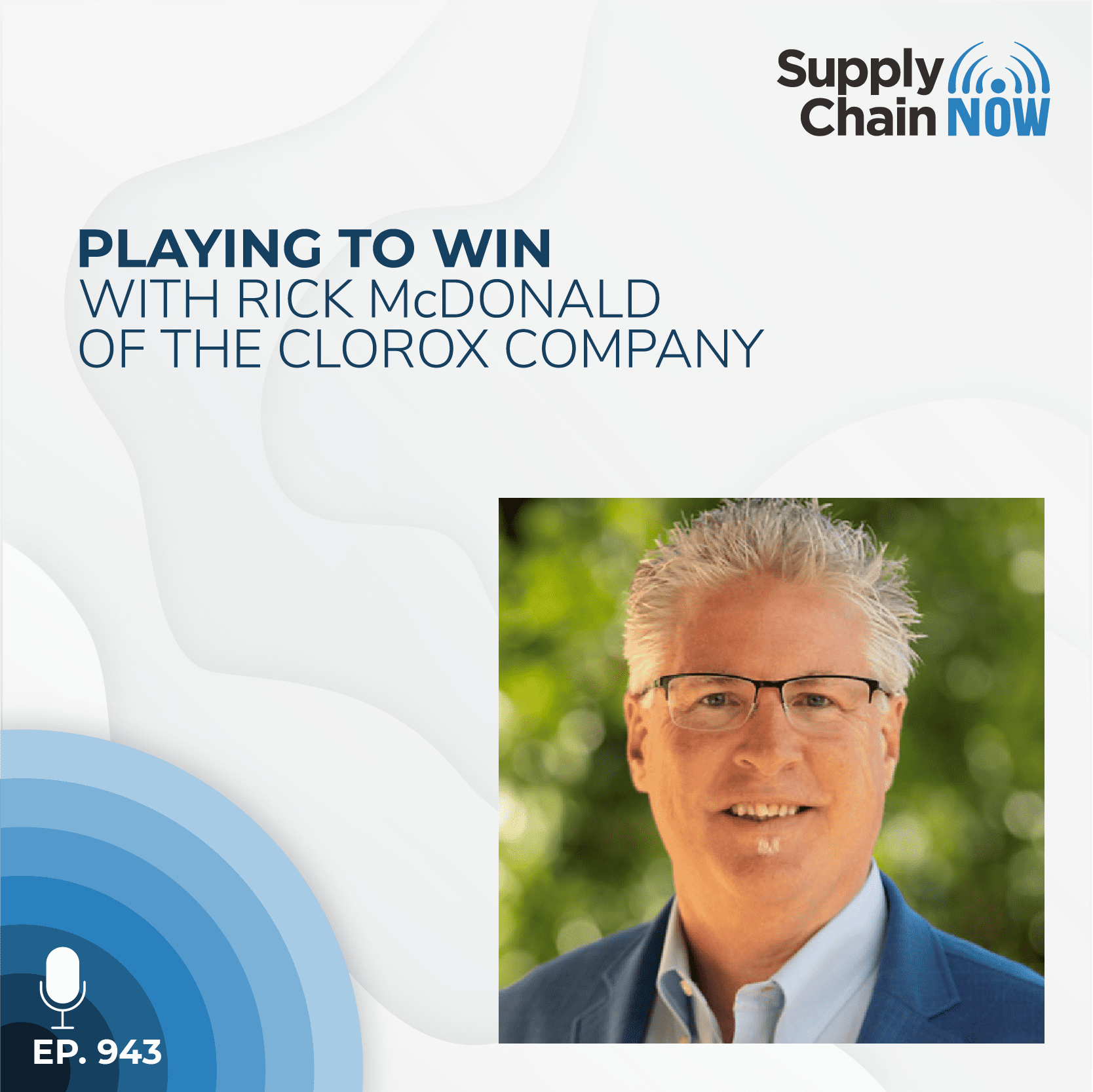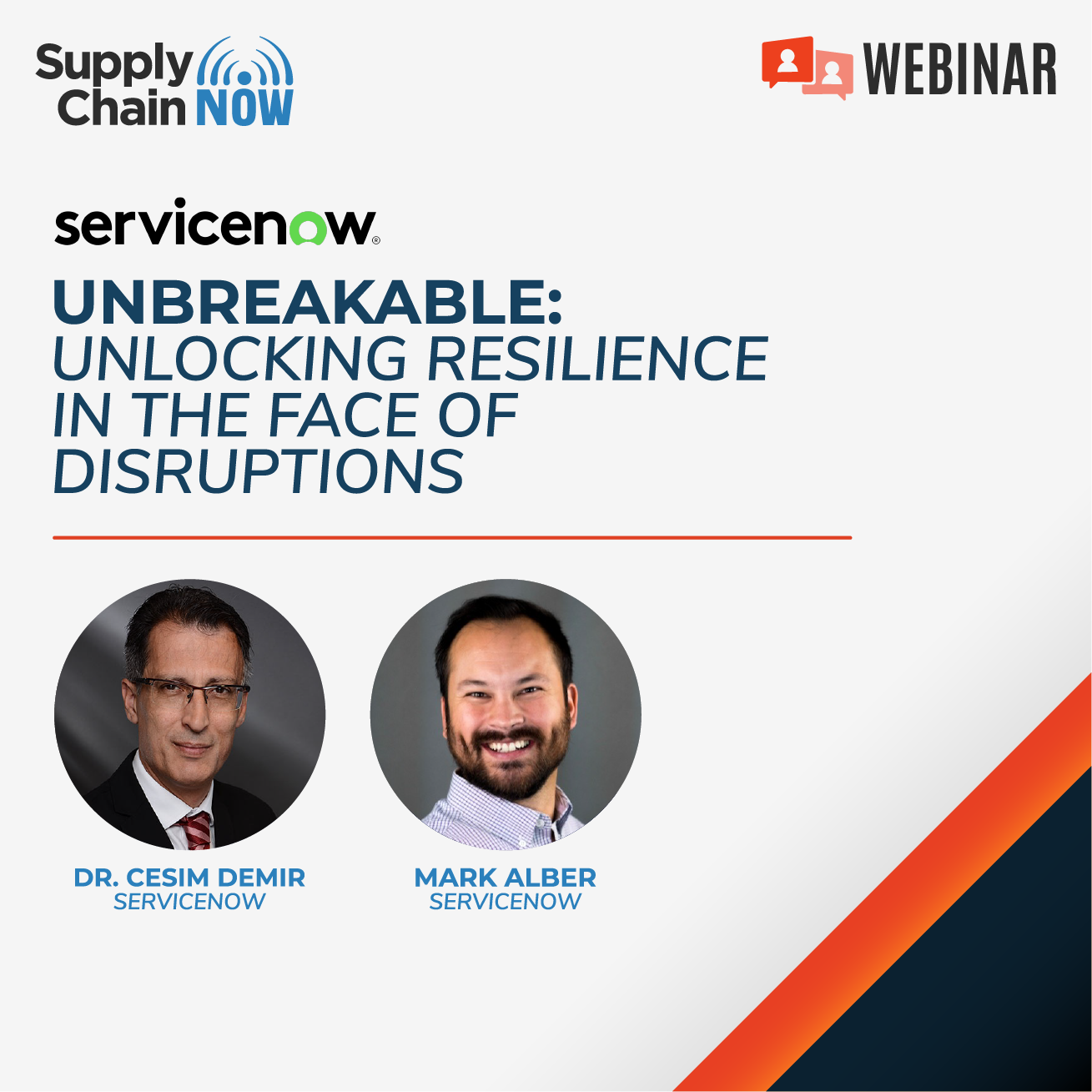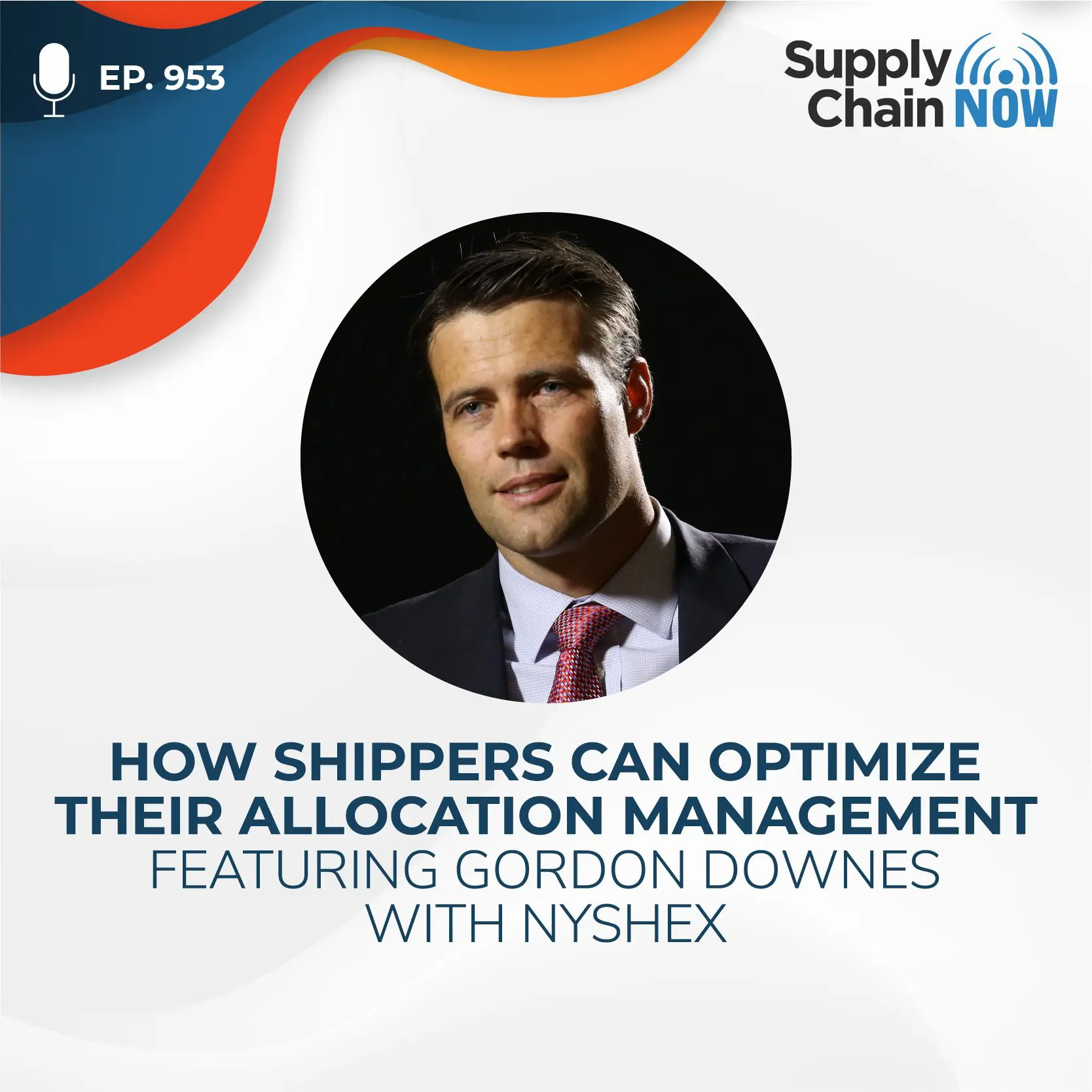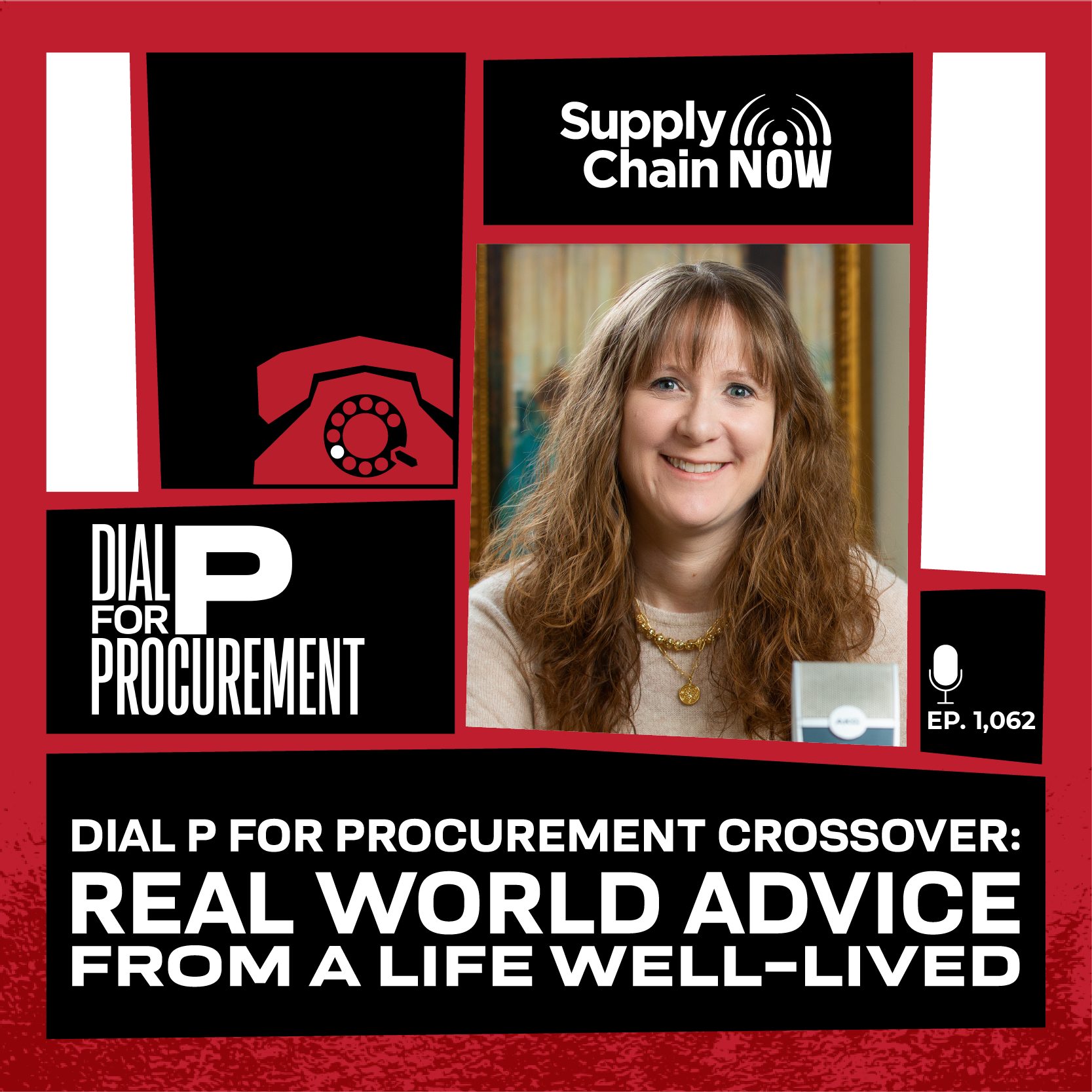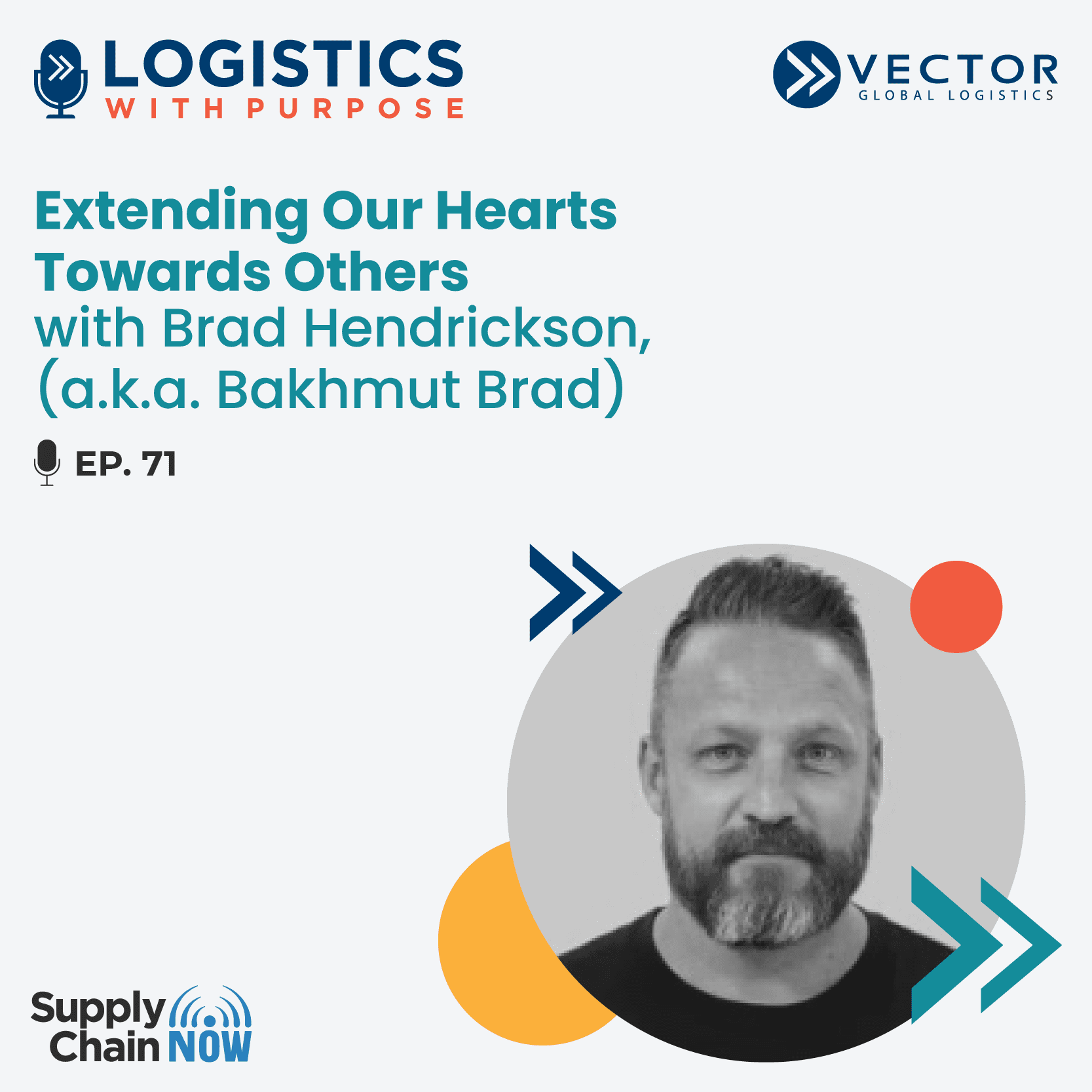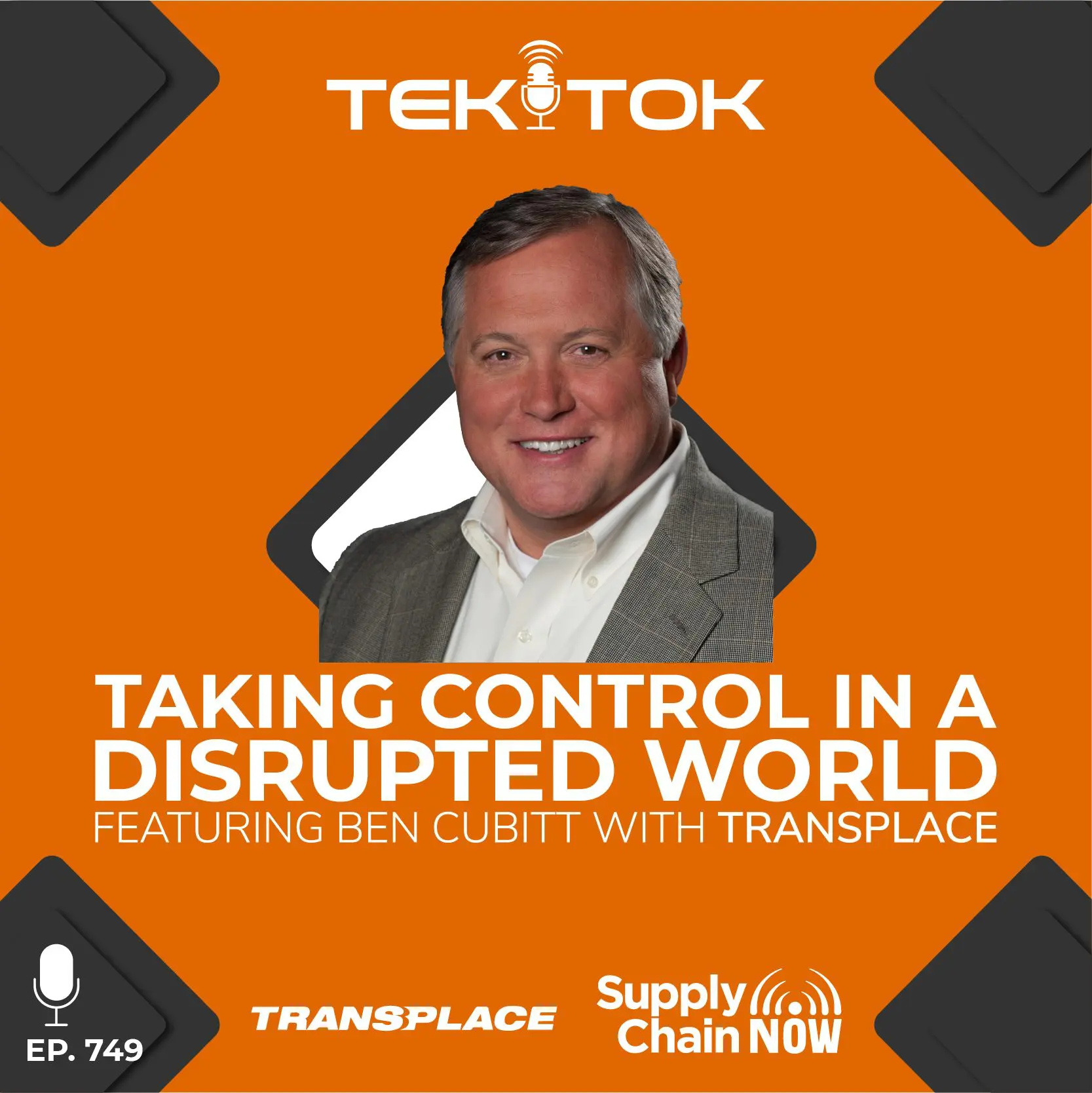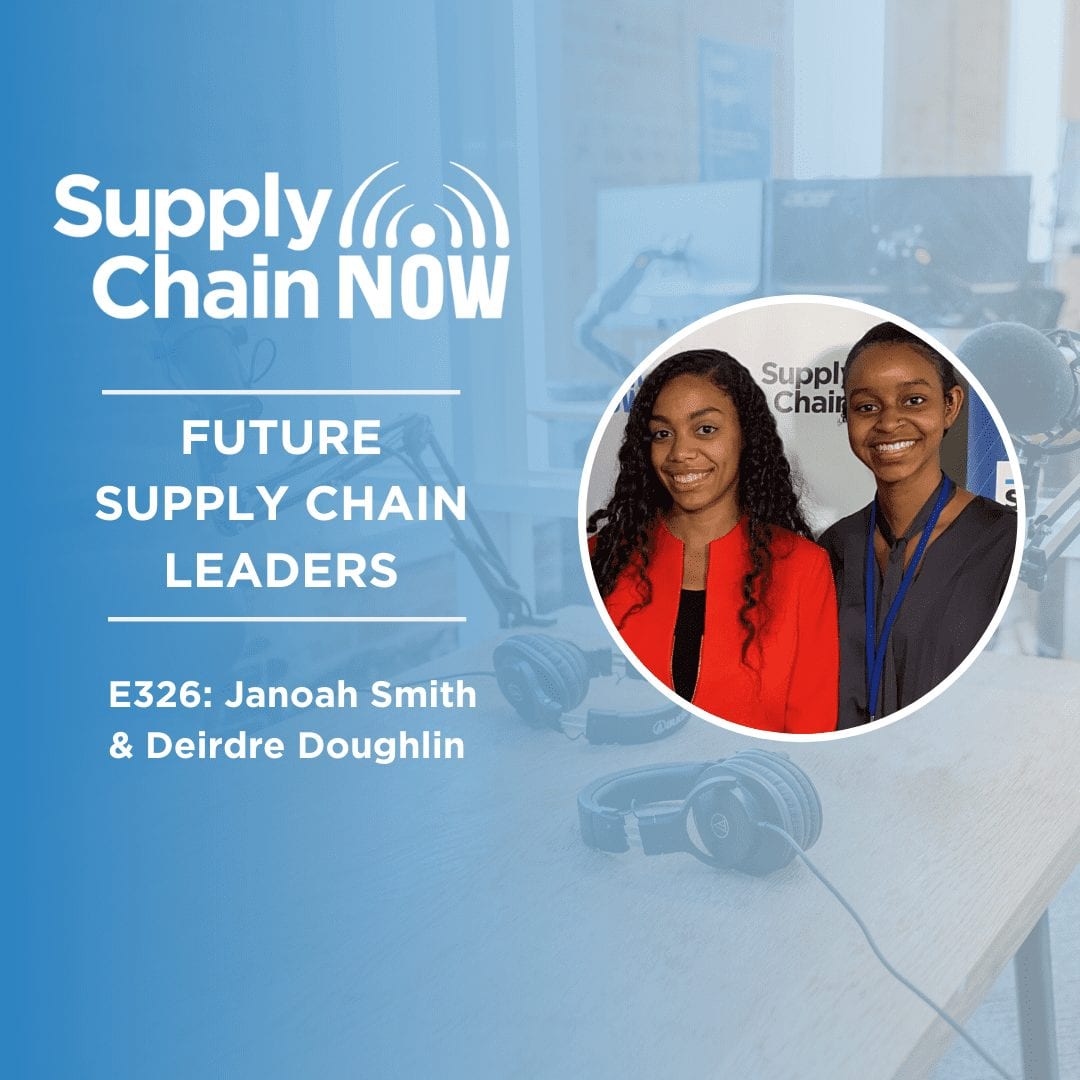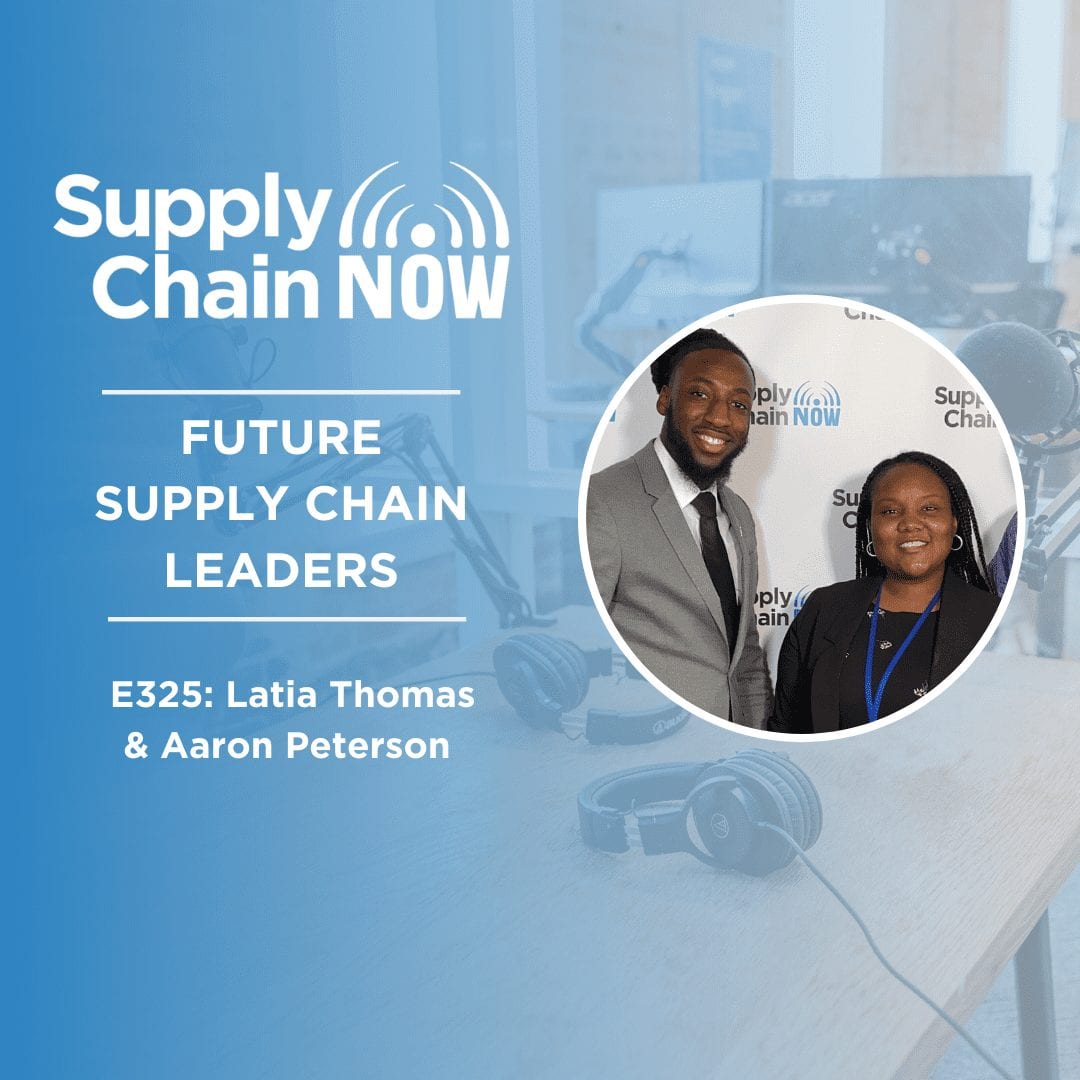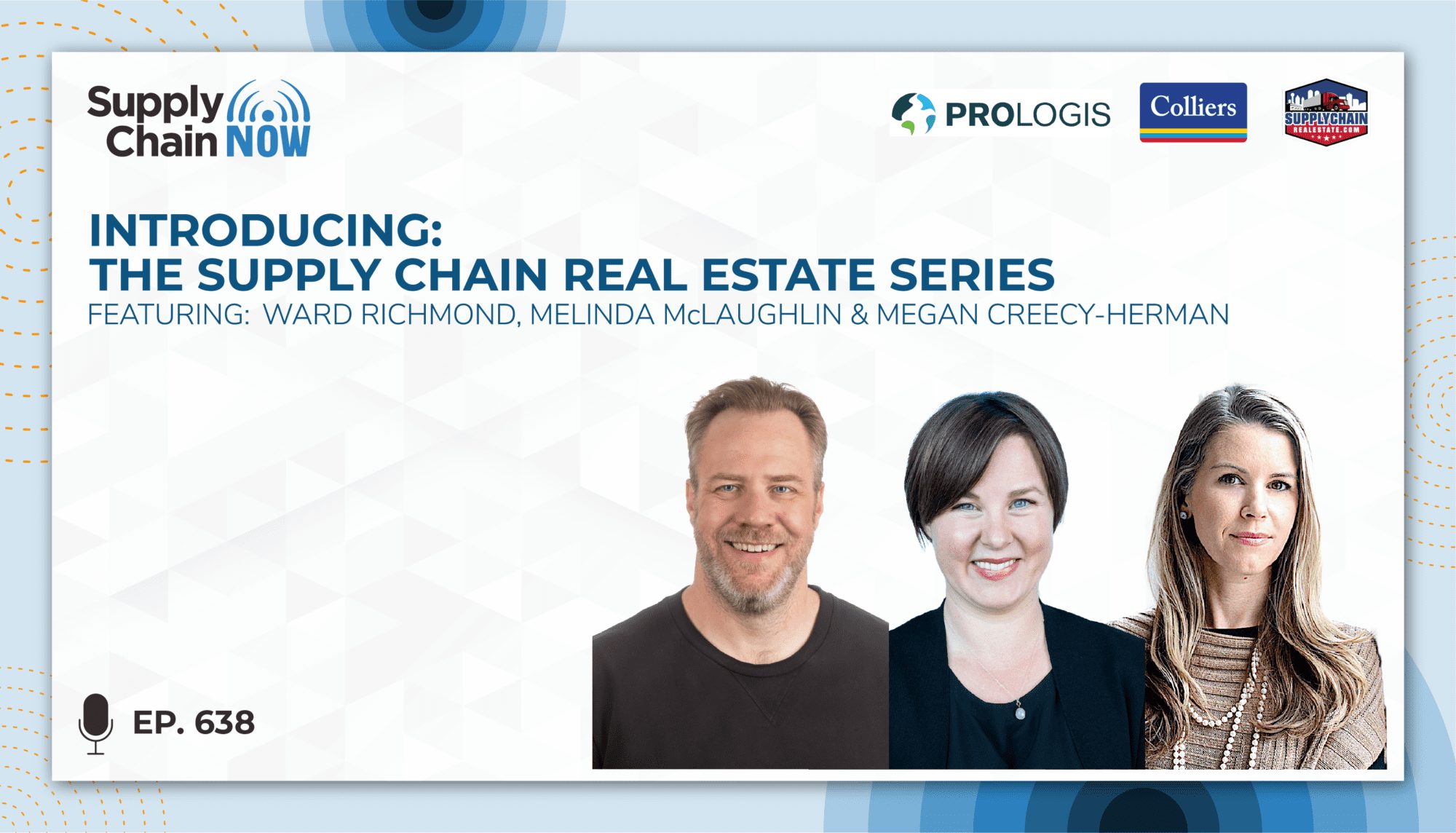
Episode Summary
“At the end of the day, supply chain decisions are being made more holistically. Let’s think about the entire ecosystem, not just the real estate, and it’s so powerful.”
– Melinda McLaughlin, Vice President and Global Head of Research, Prologis
Like talent and commodities such as steel and lumber, there is a shortage of industrial commercial real estate right now. Not only is this making it hard for carriers of all types to access the square footage they need to grow, but it is also driving up costs.
This first episode of the Supply Chain Real Estate series features three individuals who are well versed in the operational challenges that sometimes accompany real estate decisions. Ward Richmond is an Executive Vice President and shareholder at Colliers International, Melinda McLaughlin is the Vice President and Global Head of Research for Prologis, and Megan Creecy-Herman is a Senior Vice President and Head of Regional Operations-West Region of Prologis.
In this episode – the first of the Supply Chain Real Estate Series – Ward, Melinda, and Megan join Host Scott Luton to discuss:
· The current shortage of logistics space and some of the factors – both public and private sector that are driving that trend
· The implications of the eCommerce boom, including some ‘late adopter’ verticals that are just now starting to embrace it
· Whether the shortages of construction materials and commercial real estate could prevent the post-COVID economic recovery from being as large and fast as it could be
Episode Transcript
Intro/Outro (00:03):
Welcome to Supply Chain Now, the voice of global supply chain. Supply Chain Now focuses on the best in the business for our worldwide audience, the people, the technologies, the best practices, and today’s critical issues, the challenges and opportunities. Stay tuned to hear from those making global business happen right here on Supply Chain Now.
Scott Luton (00:11):
Hey. Hey. Good afternoon. Scott Luton and Ward Richmond here with you on Supply Chain Now. Welcome to today’s livestream. Ward, how are you doing?
Ward Richmond (00:20):
Hey, Scott. What’s up, man? Good to see you.
Scott Luton (00:22):
You as well. And it’s so great to have you back with us as we reinvigorate, re-launch, optimize, improve, you name it, the Supply Chain Real Estate series right here on Supply Chain Now, so Ward is back, folks.
Ward Richmond (00:38):
I’m back. I’m super excited to be back, man. And even more excited that this time around in 2021, we’ve got Prologis onboard as our partner in the series, and really looking forward to having them be a part of the conversation. Man, it seems like yesterday, and it also seems like a decade ago, when we did our first podcast, which was really just, I think, in the summer of 2019. But things have changed. Now, you’ve got the livestream. You’re up and running. Hopefully, the worst of COVID is behind us and moving into the future. So, good to realign and be back in action with you, brother.
Scott Luton (01:19):
Amen. I’m with you. And like you said, to do so, if you’re going to do a real estate series, especially on the industrial real estate, to do it with Prologis and Ward Richmond, you can’t go bigger than that. So, I want to connect a couple dots here. So, Ward, of course, he’s a member of the Colliers International team. But be sure, folks, to check out his supplychainrealestate.com site. Tons of resources there. He’s got his finger on the pulse of industrial real estate like few others.
Scott Luton (01:51):
All right. We’ve talked about the Prologis. We’ve got two outstanding experts joining us here in the stream just momentarily. We’re going to say hello to a few folks. Yes, Bob Bova, the lights are back on. And welcome, great to have you here today. He’s referring to our livestream yesterday where the weather knocked us off, Ward. But, Ward, really quick before I share some programming notes and we say hello to a few folks, why is this series important not to miss?
Ward Richmond (02:17):
Well, I’d say, this is a very important series because it’s the first of our new found series with Prologis. It’s going to be a quarterly series that takes place over the course of the year. And this is the first quarter, so we’re going to catch you up to speed on what just happened in Q1 2021 in the world of supply chain real estate. I would say, right now is just an incredible time to be a part of the business of supply chain real estate. And it’s just absolutely been exploding over the course of the last decade, really. And then, they just put the pedal to the metal once COVID happened last year, because, really, the surge in e-commerce is what’s driving so much of the growth. So, as we all click a button and get packages delivered to our house in time, the way that’s supported is by a massive amount of infrastructure that’s being put in place throughout the world, especially throughout the United States. And so, we’ll be discussing what just happened in Q1. And it’s just been a tremendous amount of activity as things continued to evolve at a rapid clip.
Scott Luton (03:28):
Outstanding. It is going to be very holistic as you’re kind of speaking to real estate touches everything, even in the information age. So, I expect a ton of market Intel insights and best practices and analysis. And I’ll share more on why here momentarily. But in the meantime, a couple of programming notes I want to add. So, first off, of course, our friends in India. Our hearts, best wishes, prayers, and actions go out to all of y’all. We had a livestream that focused on really better understanding what’s taking place as well as shedding some light and spotlight in some of the great heroes and leaders that are helping to get supplies where they need to go. So, if you want to jump in the effort – whatever you can do, give small, give big, all points in between, but most importantly get involved – you can shoot a note to a project that we’re supporting at india@vectorgl.com or go directly to one of the nonprofits that’s managing dozens of projects on the ground in India at vibha.org. Check that out there.
Scott Luton (04:36):
Also, one other quick programming note tomorrow, we’ve got our friends from IBM joining us for a Think 21 preview session kicking off at 1:30, so don’t miss that. We look forward to that conversation on all things cloud and beyond. Ward, cloud and beyond. Okay. So, let’s say hello to a few folks before we bring in our featured guests here today. Ward, are you ready to go?
Ward Richmond (04:58):
Yeah. Let’s do it.
Scott Luton (05:00):
Awesome. Of course, Peter Bolle is with us from Canada. It’s great to reconnect with Peter last week. He says, “Sweet. More Supply Chain Now goodness on a Tuesday.” Great to see you there, Peter. Latia Thomas. I’ll tell you, talk about a leadership dynamo. Latia, I hope this finds you well. We’ve got to have you back on. She recently – I say recently, I guess it was December, maybe December 2020 – graduated from Morgan State University and is doing big things already in the industry. So, Latia, hope this finds you well. Great to have you here today. Fahd is tuned in again via LinkedIn. Great to see you, Fahd. Big show, Bob Bova. As I mentioned, yes, the lights are back on. We had some fierce storms come through yesterday and knocked us off. Ward, have you ever been to Dublin?
Ward Richmond (05:47):
Dublin, Ireland?
Scott Luton (05:50):
Yes.
Ward Richmond (05:50):
Yeah, I have. I actually played rugby there when I was in college. We did a one week tour of Ireland and that’s the only time I’ve been. It was an incredible experience.
Scott Luton (05:59):
I just cannot one up the one and only Ward Richmond. Yes. So, Mervyn hails from Dublin. And it’s great to have you back with us here, Mervyn.
Ward Richmond (06:09):
Hey, Mervyn.
Scott Luton (06:10):
Pratik. Hey, Pratik. I appreciate that feedback you sent me via LinkedIn the other day. I hope this finds you well. And great to have you here once again. Susan is also tuned in via LinkedIn. Great to see you here, Susan. Let’s see here. So, Purvesh. Purvesh is looking, looks like, for some input around advancing with your supply chain profession. Hey, we’re going to circle back. Today’s livestream won’t be tackling professional development and advancement, but shoot our team a note, amanda@supplychainnow.com. Shoot us a note and we’ll see if we can connect you with some great insights that will help you out in your journey there. And then, finally, Nahid is with us once again. He was with us yesterday. Great to have you back with his own LinkedIn. Okay.
Scott Luton (06:58):
So, Ward, we’ve got to get to these two incredible guest stars we’ve got today. You ready to go?
Ward Richmond (07:05):
Let’s do it.
Scott Luton (07:06):
All right. So, let’s welcome in our two panelists, Megan Creecy-Herman, Senior Vice-President of Operations for the West Region with Prologis, and her colleague, Melinda McLaughlin, Global Head of Research.
Scott Luton (07:23):
Hey. Hey. Melinda and Megan, good afternoon. How are you doing?
Megan Creecy-Herman (07:29):
Hi, Scott. How are you?
Melinda McLaughlin (07:29):
Good morning.
Scott Luton (07:30):
I’m doing great. I really enjoyed our prep calls and conversations with you and your team. I love just the expertise you’re bringing into today’s conversation. I’ve got my notepad ready to go, because I think we’re all going to gain a real estate certification as we leave today’s livestream. So, thanks so much for making time.
Scott Luton (07:51):
All right. So, Melinda, Megan, and Ward, we like to start up with – this is going to be kind of a lightning round light on the front end of today’s livestream. So, today, yes, it is May the 4th be with you. It is Star Wars day. But I would argue more importantly, it is National Teacher’s Day, at least here in the States. And, you know, I took a minute this morning to think about just all the names of our teachers that came to mind as I think of all those classes I failed and struggled with throughout elementary and high school and college. And there are so many names of folks that you want to thank. But I want to flip the table here. And, Melinda, I want to start with you. You know, give us the name of one teacher in particular who had a big impact and why on your journey?
Melinda McLaughlin (08:37):
Well, it’s going to sound so nerdy, but Mr. Fisher was my accounting teacher and he got me into business, really sparked that. And just the way he presented, what I think most people consider pretty dry material, but connected it with a way everybody lives their lives, really struck a know, and he supported me all the way up to college and beyond. You know, he wrote me that recommendation letter. Just a great person and a real inspiration. Although, I had many – and I would say today more than ever – have vast appreciation for teachers, so thank you all.
Scott Luton (09:12):
Amen. Speaking of the pandemic era, to deal with all of these challenges above and beyond, unique challenges that many of us haven’t ever tackled before, and still get the job done, and take care of our students and our children and beyond. So, you said Mr. Bishop, is that right?
Melinda McLaughlin (09:29):
Fisher.
Scott Luton (09:29):
Fisher. Sorry. Mr. Fisher. Okay. So, Mr. Fisher. Okay. Megan, how about you?
Megan Creecy-Herman (09:35):
For me, it’d be Mr. Handley, who was one of my first music teachers as a kid. So, Melinda, I might be able to one up you there with the nerd alert. But I played music throughout my childhood. I was in multiple bands. And he was one of my first teachers that turned me on to my love of jazz music, which I still have today. I listen to a ton of Coltrane and Duke Ellington. And I think music is such a great outlet for kids growing up, I know it was for me. So, I really appreciate Mr. Handley as well as all the music teachers out there.
Scott Luton (10:08):
I love that. We’ll have to have you back on a music focused episode talking about things you lean on to get through the pandemic. So, I love that. Mr. Hanley. Okay. Ward Richmond, how about you?
Ward Richmond (10:20):
Okay. So, I’m going to keep going on the music as well. And, Scott, you and I talk about this a lot on some past episodes that I’ve joined you for, but I played music for a living in my 20s. And I started playing my junior year of high school. So, we had an AP English teacher, senior year, Mr. Mitchell. And I formed my band that I went on to tour with when I was 19 years old. And we hired Mr. Mitchell to be our drummer. So, I was one year out of graduating from high school, and then he joined our rockabilly band, and we were playing honky-tonks throughout the week with him. He didn’t go on to go on tour with us but, I mean, the dynamic changed so fast and he’s still a very close friend of mine. And, now, I just call him Dave. But he was originally Mr. Mitchell. So, that was pretty cool.
Scott Luton (11:15):
Man. Y’all great, great stories there. Okay. So, I want to say hello to a few more folks. And then, Ward, I’m going to turn it over to you. We’re going to get started into our conversation. Alaa is back with us from Sudan, and it’s rainy there. Hey, it’s rainy here as well, Alaa. Keep the perspective coming. I really enjoyed what you’ve contributed via our livestreams. And Nahid is taking a page on my book, welcoming both of our panelists. Looking forward to hearing from Melinda and Megan here today. Okay. So, with that said, I have one more here. Robert is tuned in from Rwanda. Great to have you here via LinkedIn, Robert. I look forward to your perspectives. Okay.
Scott Luton (11:51):
So, Ward, where are we starting here as we talk all things supply chain real estate on Supply Chain Now?
Ward Richmond (11:58):
Well, let’s start, Melinda, you’re the Head of Global Research for Prologis, I mean, wow. When it comes to the world of supply chain real estate, you are at the forefront. I feel like you guys have to be interfacing with more occupiers of supply chain real estate than any other company that I’m aware of in considering them your customers. So, we’d love to just hear what’s going on, what are you seeing out in the marketplace, and what’s happening out there.
Melinda McLaughlin (12:30):
Thanks, Ward. Yeah, we have over 5,500 different customers, obviously spanning from global, multinationals, to small mom and pop shops. So, it’s really a great position to sit in, especially as a researcher where you get to, not only see this all come through the data, but leverage those kind of one-to-one customer relationships. And I know Megan will have some good insights there as well.
Melinda McLaughlin (12:52):
But what I would say is the big news is on the demand front. You know, how quickly supply chains have needed to pivot and get back into growth mode after what was, you know, clearly the deepest global recession we’ve ever had. So, what we see today, more customers on their front feet and a much broader diversity of customers. So, last year there were some clear leading industries, you know, the big global e-commerce names we all know, food and beverage, a few select segments.
Melinda McLaughlin (13:21):
Now, as we start to, in many places, contend with the specter of things going back to normal, there are many more customers who realize that the supply chains they need for tomorrow are different from the ones they might have or the ones that they planned a year or two ago. There’s been so much change. So, what we see is a lot of confidence, a lot of leasing activity, a lot of planning for the future, not just economic growth, but a lot of structural change behind the scenes. Now, all of this is an environment where there isn’t enough logistics real estate to go around in many places. So, you have this synchronized growth at the same time that you have scarcity in a lot of places. So, this really ups the urgency level. And, you know, Megan can definitely, I think, comment on what it’s like on the ground. So, Megan, what do you feel day-to-day dealing with these customers in terms of urgency?
Megan Creecy-Herman (14:19):
Thanks, Melinda. Yeah, I think you articulated it well, which is, there is a sense of urgency almost universally as we take a step back and consider the market dynamics on the West Coast. I would say that the momentum we saw pickup, call it end of Q3 or Q4 last year, as things really fired back up, even in the midst of COVID, that has continued all the way through Q1 and, I think, even picked up steam. So, what you’re seeing on the customer demand side, as everyone’s trying to meet this new kind of pull for consumption throughout the United States, it’s translating into that customer demand for industrial space on the West Coast.
Megan Creecy-Herman (14:57):
And then, that’s combined with the lack of supply because people did pull back speculative construction starts kind of Q2, Q3 last year. So, those things are coming to a head. And what we’re seeing is competition for space almost on a regular basis amongst customers. And you look at almost record low vacancies in so many key markets. For instance, the Inland Empire right now, they’re at 1.5 percent vacancy rate in a 600 million foot market. I mean, we’ve never seen these dynamics before. So, for us, it’s trying to meet that sense of urgency as best we can and it’s tight up there right now.
Scott Luton (15:34):
What a great way to kind of set the table. Ward, why don’t you chime in? What are some of the things you’re seeing based on what Melinda and Megan have already shared?
Ward Richmond (15:44):
You know, our mantra is speed and flexibility, and we stole that from all of our customers. Because that’s what they all want. They need the speed to the market. They need to set up fast. They recognize they’re not necessarily sure what they’re going to need a year from now. So, we’re trying to plan out as far into the future as possible, but also try to allow room for flexibility while dealing with this very tight marketplace. I mean, if we’re doing a survey for a client and we’re working in every city you can name in North America, so we’ve got pretty good polls on the macro of North America.
Ward Richmond (16:27):
But Dallas, for instance, we’re building 30 million square feet a year, plus or minus. I mean, that’s a lot of space being built and our vacancy rate is higher than most markets. But, still, if we have a client that needs, let’s say, 200,000 or 300,000 square feet, we might have 30 options if you would go run a report. But once you really dig into it from a transportation analysis aspect, and a loading aspect, and the trailer parking aspect, there’s going to be maybe one or two options that fit the real need. And that’s Dallas.
Ward Richmond (17:02):
So, when you’re talking Dallas versus LA, it’s like night and day difference. You’re lucky if you have the one. And markets like Toronto, where it’s very difficult to build and it takes a long time, we’re having to track space and figure out who’s moving out years in advance if we want to go get into an existing building. And then, the speculative buildings, leases are getting signed like a year in advance or more just so people can lock down space. So, it’s pretty crazy out there.
Scott Luton (17:32):
It sounds like 4D or 5D chess, especially for those of us that are not real estate experts. So, I appreciate what y’all are sharing. I want to switch gears a bit. So, clearly what we’re hearing, what we’re all seeing, the shortage of logistic space is certainly one of the challenges. But, Megan, beyond that, that basic core challenge, what else are you seeing your customers deal with?
Megan Creecy-Herman (17:56):
That’s a great question. You know, we’re touched on speed and I think right now there’s this sense of urgency for customers to get that space. And we’re trying to meet that considering the dynamics of the market. But I think a further issue that is something that was exacerbated in COVID was, you know, municipality challenges that we’re seeing across the board in so many states, specifically here on the West Coast, in California. So, you’re seeing delayed permitting times as people are trying to get approvals to either break ground on shell buildings or build out TIs. We’re seeing in certain cities moratoriums being enacted on industrial development. As these municipalities grapple with, you know, this new increased demand for e-commerce and the fact that they want the manufacturing jobs, oftentimes. So, they’re trying to balance those wants and needs for their constituents but, unfortunately, it’s really hampering that ability for us to grow the way we need to.
Megan Creecy-Herman (18:53):
I think the other thing we’re touched on that I think is spot on is flexibility that customers want. Because of our scale, that’s something we can provide. But it is very tough for customers today to try to make decisions to take down space 12 to 24 months out like they know they need to. That’s a really long lead time, and many of them don’t know what their true demand is going to be. So, with us and our scale, we’re able to offer that flexibility because customers know they can expand with us if that comes up. But I think those are two major issues I’d hit on that seem to be pretty consistent today.
Scott Luton (19:28):
Excellent point. Okay. Before we move right along, I want to bring in a couple of comments here. So, Hiran is tuned in via LinkedIn. Great to have you here. He says, he’s an undergraduate in Sri Lanka. “Your discussion is very useful.” Hey, I’m with you, Hiran. I’m filling in my big blind spot when it comes to real estate. It’s useful on my end, too, so I agree with you. Thanks for tuning in. Nahid talks about how we’ve got to upgrade and change, basically, our supply chain management methods, which has already been happening and will continue to happen based on all the new constraints and challenges we’re seeing. Some of which both Megan and Melinda both have spoken to. And then, one final thing before we move along, hello, Aulabi. Great to have you here with us today. Mervyn, side note, I hope this finds you and your family back in India well. Mervyn asks about any contingency funds. So, when we think about these curveballs kind of around the corner, all the surprises that have played themselves out in the last 18, 24 months – open question for the panel – have you all seen any new contingency scenario planning, whether it’s putting money aside and funds aside or a new scenario planning take place with your customers? Anyone want to tackle that?
Melinda McLaughlin (20:45):
Well, I think generally we’re having a lot more discussions about inventory levels, right? I think, you know, we probably all read about it in the paper every day, the new shortage, whether it’s semiconductor chips, there is catsup, it really spans the gamut. But it’s all a factor of this multi-decade trend we’re just-in-time supply chains. And when they’re increasingly global, increasingly reliant on single sources of origin, and single maybe gateway bottlenecks such as the ports, you can see in a pandemic or any kind of disruption how that breaks down quite quickly. So, I do think there’s a lot more customers today thinking about holding extra inventory within a country’s borders to prepare for these eventualities, these higher risks.
Melinda McLaughlin (21:35):
One, you know, interesting anecdote we’ve noticed from the past is, the year after Brexit was the strongest year for UK demand of the cycle. So, a lot of customers, again, building in those buffer stocks to make sure that they’re prepared for any complications that might come up, whether it’s getting your goods through the port and through customs or simply cost increases, which we saw also in the U. S. with the U.S.-China tensions. And then, the pandemic was basically, take a local disruption and make it completely global, completely bigger than anything supply chains have ever experienced. And so, customers are still processing that today. Inventories are too low. We continue to wait. We continue to hear about these shortages that are holding back business.
Melinda McLaughlin (22:22):
So, I think that in contingency planning, I think, there’s probably a lot of other ways you can tackle it, but that’s one of the most accessible, and I feel like the most broadly discussed today. Again, customers, I find based on boards and Megan’s comments, I would echo that they’re really still focused on the near term and maintaining that flexibility writing their supply chains for today. But when you think about planning for the long term, it’s part of the discussion in a way it wasn’t before the pandemic.
Scott Luton (22:51):
Well said. And, you know, previous guests and maybe even hosts have said that supply chain management is risk management. And I like that thought. When we see it from a formal and a discipline standpoint – and this really predated the pandemic – we’ve seen more organizations create those chief risk officers and, really, very intentionally build up their approach on steroids to strategic risk management and all the things that it encompasses. So, excellent points there, Melinda. And great question there, Mervyn.
Scott Luton (23:24):
Okay. So, before we take a deep dive into the verticals that we should point out, Rick Kingery says, “Agree. Just in case inventory and dual sourcing is here to stay.” Dr. Rhonda Bompensa-Zimmerman is with us once again. Rhonda, I hope this finds you well. Great to have you back. I look forward to reconnecting. I look forward to hearing your take on some of what’s discussed here today.
Ward Richmond (23:48):
I just got have to say, what’s up to Rick Kingery. He’s one of my colleagues, so Rick and I do a lot of business together. So, good to see you, buddy.
Scott Luton (23:56):
Rick, welcome. A friend of Ward is a friend of ours. All right. So, let’s talk about specific customer verticals that we should definitely speak to. And I want to start, Melinda, we’ll stick with you. What else are you seeing when it comes to these verticals?
Melinda McLaughlin (24:11):
Well, I think it wouldn’t be a logistics real estate panel without talking about e-commerce. Ward brought it up at the beginning. But as far as the customer vertical where we’ve seen a tremendous amount of change in demand, I think e-commerce is it. And it spans beyond your pure-play. There’s a lot of customers and, what I would call, under-penetrated verticals, like construction home improvement. Not a lot of online prior to the pandemic are making huge investments today because they saw such tremendous growth over the past year or so. Food and beverage, of course, is another great example of that.
Melinda McLaughlin (24:44):
And to tie it to our expertise, logistics real estate, which doesn’t move around, it’s really about the location, right? For e-commerce getting close to those end consumers is really key. So, when we think about tying all these things together, it’s really about, you know, controlling more of your supply chain as close as possible to the end consumer. And in that way, you can control the customer experience. I think this evolution is still ongoing. We’re in the early innings. But I’d love to hear Megan’s take.
Megan Creecy-Herman (25:18):
No. Well said, Melinda. I agree with everything you said. And to pick up on your last point about this being in early innings, you know, anecdotally, I’ve been observing my son and his behavior during COVID. So, my son is five years old now. He was three-and-a-half pre-COVID. And when he was three-and-a-half, one day he ran into our kitchen and he said, “Alexa, get me a police man’s costume.” And then, he looks at me and he goes, “Mom, where is it?” And we had a conversation where I explained how this worked. I said, “Hey, we’ll put the order in and it’ll be here in five days.” And he said okay and he walked off.
Megan Creecy-Herman (25:52):
Now, fast forward to today and what we’ve just been through over the last 14 months, he’s five years old now. He says, “Mom, I want Legos. I want one of these two, which one should I get? When does this one come in? When does this one come?” I said, “This one will be here tomorrow.” “Mom, I want that one.” And then, the next morning it starts like a drum beat, “Mom, what time are my Legos coming? Can you check the app? How many more stops?”
Megan Creecy-Herman (26:13):
So, you take a step back and you think about the fact that there are 50 million kids in this country under the age of 11, who we have just conditioned to expect what they want with almost immediacy. And to your point, Melinda, I don’t even think we’ve begun to scratch the surface of what’s going to be required to meet those demands 5, 10, 15 years out as these consumers want that instant gratification of their product on their doorstep when they want it. So, I agree completely.
Scott Luton (26:44):
I love that for so many different reasons. It’s intriguing because it is how e-commerce and the current state has trained us at all ages, evidently. But I love that even more because it’s the people – and, of course, the company has the technologies, but the people that make up global supply chain that’s enabled that to happen. And especially during this pandemic, when you have so many folks that couldn’t in good conscious and couldn’t out of outright fear get out and get even the basic necessities. And leaned heavily on the e-commerce supply chain, they get stuff to their door. And so, you know, there’s some good news even in the darkest of days if you go finding it. And I love how the global supply chain workforce has really delivered.
Scott Luton (27:34):
All right. So, Ward, beyond what Melinda and Megan have shared, what else would you add in terms of any specific verticals?
Ward Richmond (27:42):
So, our team, we specialize in representing third-party logistics companies and transportation companies. So, both the businesses are absolutely booming as they support all of this e-commerce growth. And I actually wanted to ask you a question, Megan. I mean, so much has changed over the last five years or so, but I remember five years ago, there were always these calls for our 3PL clients, their shipper customers are asking them to get short term overflows base for peak season.
Ward Richmond (28:15):
And Prologis, you’re actually in one of my case studies. Because we had a logistics customer and their client, I believe, was Samsung. And that’s when the Samsung phones had their issues, if you recall. And so, there was a phone recall and we put them in 50,000 feet, then moved them to 80,000 feet, then moved into 200,000 square feet all within a matter of months. And it took place so that it gave Prologis occupancy at the end of the fourth quarter. And then, they agreed to help us out as we continued this need just through the first quarter so that then they had occupancy through the first quarter. I mean, it was just like the Wild West of doing real estate deals there.
Ward Richmond (28:58):
However, I feel like a lot of shippers are now in 3PLs, on behalf of their shippers, are planning for this peak season. That was not really a peak season surge. This happened during peak season. But Prologis, for awhile, you’re setting aside some of these warehouses for the short term overflow needs. Is that even possible right now with the vacancy rates?
Megan Creecy-Herman (29:20):
Yeah. That’s a great question, Ward. I mean, it is challenging in today’s environment. I can tell you that, you know, taking a step back thinking about what we just saw with congestion at the ports of LA Long Beach, you can imagine the spike we saw in requests for short term requirements. And that is really tough to balance when vacancy rates are this low. I can tell you that we’re absolutely giving preference to current customers in the portfolio and being as strategic as we can. And really keeping the lines of communication going. So, we know if we have something going up, this could fit for a 3PL over here who thinks they’re going to get a new contract. So, short answer to your question is, it’s challenging but we’re absolutely still trying to do it.
Megan Creecy-Herman (30:00):
A question for you, kind of back at you on the 3PLs, something we’re seeing as a trend is, historically, when 3PLs went out and looked for space, it was let’s collect proposals so we get our numbers together so they can bid on the contracts. But they wouldn’t necessarily take it as far as negotiating a lease. But we just saw something on a deal in Seattle, where a 3PL customer said, “Not only am I willing to step up from 175,000 feet to 280,000 feet, I’m willing to do it 14 months out. And I’m willing to do it even though I don’t have a contract in place for the entire space. I think it’s going to come. And I know I got to reach for the space because it may not be there.” I mean, are you seeing that kind of behavior right now on a regular basis from your 3PL clients would be my question?
Ward Richmond (30:47):
I’m not seeing it on a regular basis. But I think every business development executive at the 3PL wants to be doing that. And every CFO is telling them, “Hey, hey, hey. Slow down.” Because the capital expenditure is so huge in committing to that expenditure so far in advance without having a customer in place to pay for it. I mean, I think it’s a delicate balance right now that all the 3PLs are paying attention to. The aggressive ones are doing what you say they’re doing. And I think they’re going to have to and I think a lot of them are looking to fill the suits right now. But potentially even trying to own [inaudible] facilities. And we have a couple of clients that are looking into doing that. But getting in front of their needs for additional capacity, I think, is just going to be critical.
Ward Richmond (31:40):
And the fact is – back to Dallas – we have land as far as the eye can see, right? But at the same time, every land site that’s within any type of appropriate driving distance to the city center is controlled by developers now. We’re building 30 million square feet per year. The industrial real estate space is not going to be there. And I’ve been saying a long time joking around with office brokers saying that, “In the future, industrial space is going to be more expensive than office space because of this rising demand in e-commerce and having to get this product as close to the people as possible. And we’re going to be out of land.” And Dallas has a ton of land. But a place like LA or Toronto, like I mentioned, and New Jersey is just getting so difficult.
Ward Richmond (32:33):
So, I think if I’m a 3PL and I’m the CEO, my strategy would be go get control as much square footage as possible because I think the need is just going to keep going. And e-commerce is still in its infancy reel. You know, it’s got such a long way to go. And as that continues, the demand for space is going to grow exponentially.
Scott Luton (32:54):
Excellent point. We all have probably seen The Noid is back from the ’80s. We’re talking ’80s, ’90s to the show. And, you know, Domino’s has rolled out a commercial with The Noid as they kind of announced to the market their drone delivery bots that will be delivering pizzas. Man, I feel like Buck Rogers sometimes. It’s amazing.
Scott Luton (33:17):
But, Ward, I agree. We’re just scratching the surface in these consumer demands and expectations, that Megan spoke to earlier, is going to fuel all sorts of innovation. However, you’re all talking about space and we’ve seen in parts of California some of the pushback from communities that are struggling to kind of, “Okay. Where does this fit? And how much is too much.” It’s going to be fascinating to see how those conversations play out as well. But speaking California, Ward, we’ve got a question, I think, for our panel, right?
Ward Richmond (33:50):
Yeah. Well, I was looking at Clay’s comment. He asked, “Who is Buck Rogers?” And I’m thinking the same thing. So, Scott, who is Buck Rogers? [Inaudible].
Scott Luton (34:04):
Gosh. You know, I get this problem, too, when I talk about Reader’s Digest, which I still get. I’m telling myself there. But, folks, that might be an old anachronism. But Buck Rogers was this T.V. show in the ’70s and it was about space. And I can’t remember who played Buck Rogers. But kind of like Star Trek, very forward-looking. So, Clay, thanks for that question there. Okay. So, where were we? Where were we?
Ward Richmond (34:38):
I think, was Buck Rogers shot in the state of California, possibly.
Scott Luton (34:42):
Great segue.
Ward Richmond (34:42):
We’re talking about California. Megan and Melinda are both in California. Megan’s overseeing or based in the greater Los Angeles area. So, tell us what you’re seeing in California, the dynamic of everything that’s going on there. I know there’s been a lot of talk. I would love to hear a little bit about what’s been going on in terms of the quarantine and all of that. I went to LA three times this year so far, actually. So, I went January 3rd and it was a ghost town. And then, I went back in March and then again April. So, it seems to be opening back up. Nevertheless, I also see people on my Instagram. Like my buddy, Conrad Mattson, he’s a fellow commercial real estate broker, and he likes to put, “Don’t California my Texas.” We see lots of Californians coming out to Texas. So, we’d love to hear your thoughts on all of that.
Megan Creecy-Herman (35:36):
Yeah. Absolutely. Great question. So, just taking a step back in how we look at California, I would tell you that, yes, fewer people moved into California in 2020 than exited the state. But I don’t think overall we see, you know, a structural shift in the fact that it’s the most populous state in the country and it’s one of the world’s largest economies. And we don’t see that changing anytime soon. I think what we did see as we’re starting to dig into some of the, you know, population migration that took place in COVID is that, people did relocate to many of the locations they were already moving to pre-COVID. So, let’s say, in Austin, Texas, Phoenix, Las Vegas, those cities are absolutely still picking up their share of net in migration.
Megan Creecy-Herman (36:24):
Yeah. I mean, it’s true. It really is. You know, I think in the Bay Area, obviously there was quite a bit of movement, but they think that 80 percent or so of the people that exited the Bay Areas still stayed in California. So, those shifts are happening. It may have accelerated, but I don’t know that it materially changed any patterns that weren’t already underway pre-COVID. And for us at Prologis, what we feel really good about within the region is, yes, we have scale in California. But we also have sizable positions in a market like Phoenix and a market like Las Vegas. So, we’re well positioned to capitalize and have space there for our customers to help them grow in those markets as well.
Ward Richmond (37:03):
Are you seeing Reno, too, on that list of places? I’m here in Reno all the time now. It’s another shift over to Nevada to still service Northern California, really, right?
Megan Creecy-Herman (37:14):
Yeah. Reno’s been a beneficiary as well. They’d be on that list. I put Phoenix and Vegas at the top and the region of Reno as well.
Melinda McLaughlin (37:24):
And when you think about it, everybody here, the benefits of living in a downtown core vanished during COVID, no restaurants, no museums, no big community gathering. So, what I think we’ll start to see this year is a lot of the people who might’ve stayed at home or stayed in a rural area with their parents, you know, the people who normally would move to the city, there was no benefit to that. I think we’re starting to see that shift. And if you follow the apartment REITs – which I do – those that have big coastal exposures, New York, Seattle, LA, and certainly the Bay Area are starting to see rents tick back up and occupancies rise. Because, again, I think, naturally, if you were going to move to a more rural location, let’s say a bigger house just generally, whether it’s in the burbs or it’s in Austin or wherever, huge incentives to do so in 2020. And not many to move to the city. So, I think we’ll see that kind of shift and revert to its normal pattern.
Melinda McLaughlin (38:29):
But for our business, California, not only huge population, but the biggest port in the U. S. It’s a great place for our customers to be. They need a presence here. So, while you can definitely augment, and I think everybody should look at the resiliency of their supply chain and think about that, California is not going away.
Megan Creecy-Herman (38:49):
Yeah. And to underscore that point, Melinda, look at the broader Southern California area, we’ve got a population of over 26 million people. So, you’re talking about one of the largest consumer markets out there with that port adjacency. So, that’s not changing. And I think what’s going to be interesting – and, Ward, I’d love to hear your perspective on this from what you’re hearing from your customers – as companies are going back to work in, maybe, what we’re calling, a hybrid environment going forward – as Melinda mentioned, people have moved away to these rural communities – are they going to come back? Are the companies going to require them to come back in person? How’s that going to play out? Are you hearing any of that from your customers on what they’re going to do yet?
Ward Richmond (39:31):
I’ve heard lots of different things. And so many of my customers were not dealing with so much of their corporate office type infrastructure. But I’m friends with plenty of people that have a lot of office space. And I have one friend and they’ve just basically eliminated all of their office base moving forward. I think when COVID hit, they realized that one expense that they couldn’t cut was their real estate costs. And so, they’ve just gone purely remote. Meanwhile, I think a lot of others have been doubling down and taking advantage of a little bit of a dip in the office market in going back to that. But I think it was a time to go prove that for different companies, with different cultures, it works or it doesn’t work. But I don’t think there’s a one size fits all. So, that’s kind of my takeaway.
Ward Richmond (40:28):
And I think, you know, entrepreneurial business, like commercial real estate, our team, we kind of like working remote. But there are other colleagues of mine that are within our Collier’s office in Dallas, they love to go to the office and they’re going to the office every day. And so, I think it’s just going to depend on the culture of the company and what you’re doing. So, it’ll be interesting to see. And it’s also, I think still early to know.
Scott Luton (40:56):
Wonderful. I tell you, we’ve got, like, an autonomous panel here. I love how you are having a conversation and trading off. That’s exactly what we need here. So, we’re seeing a forward looking technology play out in front of our eyes. I want to share a couple of comments, and before I do though, so folks, as we start to wrap, we’re going to be talking about what keeps our panel up at night. And I want to pose that same question to all of the folks that are in, what we very lovingly call, the cheap seats, folks in the comments, folks in the community. Hey, tell us what’s keeping you up at night. I want to share some of those things.
Scott Luton (41:29):
All right. So, before we pose that question to our audience, Garry Skinner is a Johnny-on-the-spot. “Gil Gerard is who played Buck Rogers.” How about that, Garry? Hope this finds you and your podcast well. Garry puts on a great podcast. Rhonda is in the Phoenix area and she has testimony, Booming here for sure.” Charles Walker is with us. Folks, if you’re not connected to Charles Walker, what a great follow. Former Army Ranger, fellow veteran, and a supply chain pro guru, for sure. Peter. And, Peter, forgive me, I can’t remember exactly what part of Canada you’re in. But the housing market is booming there. In fact, I think y’all spoke earlier to the construction, the metrics we’re seeing there. Rick Kingery, “U.S. Coastal rents growing so fast, they have to be tracked weekly and monthly versus quarterly because quarterly is too late.” He says, “How or when causes a slowing of that path?” Does any of our panel want to approach Rick’s question?
Melinda McLaughlin (42:33):
Well, I mean, I can definitely approach. They corrected early too. So, you’re going to see a lot of changes. You kind of unwind those discounts and probably get back to where you are. But at the end of the day, with any rents, we need to see wages match that pace. Here in the Bay Area, I think we have a lot of high-income employment, you know, tech companies definitely on their front feet and hiring, so less worried. And, in fact, on the demand side, let’s expand that out of just apartment housing. Housing is booming. When you talk about right-sizing your office footprint, where is that office space going? It’s going behind these doors, right? I need to have an office here. It’s not like it vanishes into thin air. It’s being relocated.
Melinda McLaughlin (43:16):
So, something that, I think, for the entirety of the last cycle, we were kind of waiting. You know, housing improved, but it wasn’t exactly booming after the last cycle and the GFC. It’s finally happening. There was a ton of pent up demand, real demographic tailwinds. So, I think as long as we have that positive economic growth that we need for people to afford, whether it’s a bigger house or an apartment in the city, I would expect some pretty substantial tailwinds. And to bring it all back to what we do, housing and construction companies use a ton of logistics real estate. So, when we start to stack up all the different players that are on their front feet, this is another segment where we’re seeing a lot of growth.
Scott Luton (44:02):
Excellent. Thank you. Go ahead, Ward.
Ward Richmond (44:04):
Hey, Melinda. I think Rick just chimed back in. Like, he’s really tracking these industrial rents, too, on the coast. And just like the coastal industrial rents going so high. And, I mean, Megan, what are you thinking on pricing? I mean, it’s hard to find pricing on a lot of things right now when you’re looking in LA. People are not wanting the full prices because it’s just like going up at such a fast clip. So, what do you see on the forefront? Is it going to taper down a little bit or what happens?
Melinda McLaughlin (44:39):
I don’t think we see it changing anytime soon when you consider all the factors we’ve already discussed. So, when you’re talking about the increased demand that we’ve seen, and you take a step back and you look at the pipeline that’s coming on new deliveries, we’re seeing higher pre-leasing percentages than we’ve seen in quite some time. So, space is being pre-leased. There’s not going to be that much [inaudible] that’s going to be available. And as we’ve talked about, as occupiers try to get closer to the consumer, you can’t make any more of this in field real estate. So, to that question, I don’t think we see rent growth subsiding anytime soon. Melinda, you can chime in on that one as well.
Melinda McLaughlin (45:20):
Well, you know, fundamentally, I don’t think we can. The cost to build a building is higher now than it’s ever been. So, yes, rents are going up, but land prices have doubled in some markets over the past two years. Ward previewed, you know, steel costs have seen some very explosive growth. A lot of other materials, we’re hearing about shortages in concrete, shortages for precast walls, lumber prices are absolutely bonkers. So, all of these add up to, it’s just much more expensive to build a building online. And so, you have to charge a higher rent just to make it pencil. There’s not enough space. Customers do need more supply. But there’s a cost that comes with that.
Melinda McLaughlin (46:03):
And, you know, when I think about the ultimate piece that probably all of us are dealing with in our businesses is labor. So, construction labor, labor for our customers and their operations, there’s not enough. And you would think after such a large disruption that we would see more labor availability, but that’s absolutely not what we’re hearing from our construction development teams. And it’s not what we’re hearing from our customers. So, a supply chain bottleneck can be fixed. The steel thing can be fixed over time. But labor prices are sticky. And these land costs, too, with so much economic activity concentrated in these areas, where, to your point, the demand, the need to get close to consumers, the fact that all that land is tied up. These buildings are going to be expensive for some time.
Ward Richmond (46:54):
I was just going to say that something I read on the steel and lumber, specifically the steel, for a lot of the buyers, the price is secondary to the availability. And I think that’s going to go for everything right now, and real estate included, because as a general rule of thumb, historically, who knows what the future holds. But when you look at overall supply chain costs, 50 percent of that is transportation, 4 percent of that is rent. So, the main thing is not going to be the rent. It’s going to be, can you be where you need to be to get it there? And the rent is just going to be a function of cost. And as costs continues to rise and land continues to go away, then that’s going to go up. But that 50 percent transportation cost is going to be the big driver. And it’s just, you know, not ideal for people focused on low rent. But if you focus on going and getting your footprint and getting capacity and locations that will benefit your customers, that’s going to be more important than trying to worry about a quarter of rent.
Scott Luton (48:05):
Excellent point. All right.
Melinda McLaughlin (48:06):
Can I say one thing – sorry – before we move on?
Scott Luton (48:09):
Sure.
Melinda McLaughlin (48:09):
I’m glad you brought that up because I think this is a really important point and something we looked into earlier this year. Which is, putting that extra facility, the urban fulfillment facility, at the end of your supply chain close to consumers. MIT did a study, you know, we commissioned it, but they were completely independent on emissions. You know, I think ESG is more focused now than ever. But we asked them essentially to model the two supply chains, one without that last step and then one with. And what they found was the transportation-related emissions. If you add that extra step, on average, go down by about 50 percent. Which also means that the costs go down by about 50 percent.
Melinda McLaughlin (48:50):
So, yes, there’s obviously this trade-off. But you can spend, I feel like, a bit more on rent if you’re getting such tremendous transportation cost benefits. And I hate to keep going on, but in the last holiday season, we saw the parcel delivery companies limit their capacity and certainly raise costs. So, if you were relying on them for a big chunk of that last mile, you know, you saw a huge impact to your bottom line. Tying it back to my original thing about controlling your supply chain, if you rely on them less, you’re closer to end consumers, you’re less at risk for some of those changes. And so, I think at the end of the day, the supply chain decisions are just being made more holistically. Let’s think about the entire ecosystem, not just the real estate. And it’s so powerful.
Scott Luton (49:41):
Great point. And, you know, beyond the cost, you’re investing in your supply chain agility and ability – is that a word? But, you know, being able to pivot and deal with whatever curve balls that come your way. So, excellent conversation here today. All right. So, our second to the last question we’re going to ask our panel here is, what’s keeping you up at night? Beyond everything else we’ve talked about, what’s keeping you up at night? So, while you all think about your answer to that, I want to share a couple that we’ve already gotten.
Scott Luton (50:10):
Don says, “Rent renewal costs keeps me up, especially where we don’t have an option.” TSquared says, “What’s keeping me up as a student of supply chain management is the growing skills gap.” Excellent point there. And then, Peter is referring to the 300 percent increase in the two by four. In fact, along those lines, a friend of mine, Alison, put something on Facebook. She caught a snapshot of a lumber truck running down 85 South here in Atlanta. And her comment was, “Shouldn’t there be a military escort with this trailer full of lumber these days?” It’s like, “Oh, kid. Those are the times we lived in.” Okay. And Peter also points out a very important key term and approach here in supply chain, “Total Cost of Ownership,” Right? Total, we got to look at the big picture. I think, Melinda said holistically, right? The big picture systems level thinking. So, I want to start with Megan. Megan, when you get that proverbial question, what keeps you up at night? What is that beyond what you shared?
Megan Creecy-Herman (51:12):
Yeah. I think for me, it’s really the inflationary pressure we’re anticipating on durable goods as well as the construction costs that we just touched on. So, not only the supply shortages with steel, where we’re talking it’s 20 plus weeks to procure, but it’s the cost increases on those materials. So, if we already saw construction costs increase, call it, 8 to 10 percent in 2020 and we’re anticipating those costs increase, call it, in the high teens for 21, that is going to have a material impact on our business. And then, to your viewer’s point who just brought up lumber, in the West Coast, we use wood in our roof systems. So, those costs are going to add another buck or two we’re anticipating with that shortage. So, I think you wrap it all together and it’s the inflationary pressure we’re anticipating of what that’s going to do to the economy. That’s got me most concerned as we look ahead.
Ward Richmond (52:04):
Excellent point, Megan. I appreciate that. Melinda, same question to you.
Melinda McLaughlin (52:08):
Well, you know, I definitely think, globally, we’re not out of the woods with COVID, so I’ll just put that there, certainly thinking of our friends in India. But let’s say we get to the other side, I think to Megan’s point, the supply chain bottlenecks mean an very uneven playing field for our customers who want to capture this period of growth, this rebound. We need this revitalization get back on the right track and with so many shortages of materials. And then, some regulatory pressure. I don’t think we’ve even really touched on that, which is more and more municipalities are less friendly to logistics uses for this land and this real estate. Will we ultimately be able to satisfy the demand out there for logistics real estate and allow the supply chain expansions and all of the economic growth that entails is something I think a lot about.
Scott Luton (53:02):
Excellent point, Melinda. A lot to think about. A lot to keep you up at night. And I got to keep the milk warm on the stove to get through all these concerns. And I bet Clay’s not getting that reference either. And I’ll hear about it in the comments. Ward, tell us, what’s keeping you up at night?
Ward Richmond (53:19):
Well, at the end of the day, I want our clients to be able to secure the space they need to continue growing their business and being a dominant force in their industry. And as the scarcity of space continues, that keeps me up at night. And so, I think about having a really fast lawyer on the team to get through lease contracts. I think about having a team of executives that’s able to make fast decisions. And, you know, I think that it’s becoming so critical to get in there and move fast to go secure space and get what you need to get, or else you’re going to get left in the dust. And certain times, you’re just not going to have a place. I mean, my job is to make sure that we get our clients in there and lock it down, and maximize value for them in terms of everything. We just talked about the TCO, and that’s what I’m thinking about.
Scott Luton (54:27):
Excellent point. And it’s really why, folks, you got to partner with the specialists. Folks that have been there and done that. These three people right here are excellent examples of that to get through these challenging time, where no one has, seems like, the answers you’re looking for should make investments in real estate and beyond. Okay. So, to that end, I want to make sure folks know how to connect with all three of you all. And let’s start with Melinda, what’s the easiest way for folks to compare notes with you?
Melinda McLaughlin (54:54):
If they want to get in touch with me, you can find me on LinkedIn. I believe the links were sent out already. And we publish a lot of research on the Prologis website, www.prologis.com, Global Insights and Research. So, there’s a lot more detail there about any of this if you’re interested.
Scott Luton (55:13):
I love that. I love organizations that, you know, contribute and basically take an open source approach to publishing information that can help business leaders. That’s an admirable trait. So, I really appreciate that, Melinda, and thanks for joining us. But don’t go away just yet, because, Megan, how can folks connect with you?
Megan Creecy-Herman (55:30):
Similar to Melinda, I’m on LinkedIn. And to Wards point about needing solutions for customers who need to move quickly, it’s really easy. Ward, just bring them to Prologis and we can go as fast as they need us to go. So, go to Prologis.
Ward Richmond (55:43):
I agree.
Megan Creecy-Herman (55:44):
Yeah. We’re the easy button. Go to proligis.com. They can search for any of our available properties, virtual tours, everything’s there. So, I look forward to connecting with more of our listeners.
Ward Richmond (55:56):
That’s why we’re talking right now, by the way.
Megan Creecy-Herman (55:59):
Uh-huh. Yes, we are.
Scott Luton (56:01):
Well, I really appreciate, Melinda and Megan, both of y’all coming on and sharing. As busy as all three of you are, but sharing these practical insights, these market observations, some Intel, and some best practices you’re seeing leaders take to navigate through. Really appreciate that. Before you leave, Ward, how can folks connect you with you?
Ward Richmond (56:23):
I’m on LinkedIn as well. And I also have a blog called supplychainrealestate.com. So, if you go there, I have lots of posts of quarterly update there, and lots of different articles, and case studies. And all my contact info is there as well. So, I look forward to connecting with you [inaudible].
Scott Luton (56:43):
It’s just that easy. Awesome. Ward, thank you very much. Appreciate that. Well, huge thanks to Melinda and Megan, both with our partners on this series, Prologis. We really appreciate y’all helping us to make this happen. We’ve been featuring Megan Creecy-Herman, Senior Vice-President of Operations for the West Region with Prologis, and her colleague, the newly deemed Global Head of Research and that is Melinda McLauchlan also with Prologis. Congratulations on that, by the way. And Megan and Melinda, we look forward to seeing you both again very soon.
Melinda McLaughlin (57:17):
Thank you.
Megan Creecy-Herman (57:18):
Thanks, Scott.
Scott Luton (57:18):
Thank you very much.
Ward Richmond (57:19):
Thanks so much.
Ward Richmond (57:24):
[Inaudible].
Scott Luton (00:57:24):
All right. It’s the simple things in life, right? It’s the simple things in life. Gosh, talk about some heavy hitting expertise both from Melinda and Megan. And I know we’re just scratching the surface and this is basically show one of the second season. The new and better second season of the Supply Chain Real Estate series. But, again, to do with WarD Richmond and to do it with the experts over at Prologis, that’s the only way to do it. Is that right?
Ward Richmond (57:54):
I agree 100 percent. I appreciate you saying that, Scott. [Inaudible].
Scott Luton (57:58):
You bet. Well, you know, you and I go back. We’re basically second cousins at this point, I believe. We’ve known each other for quite some time. So, before we leave, I want to remind folks about the nonprofit support, our efforts in India. But, Ward, on a lighter note, based on what you’ve heard here today that Megan and Melinda shared, if folks forget everything else, but they remember one thing, what would that be?
Ward Richmond (58:27):
Just remember that Prologis is the easy button. And I really mean it. We’ve talked a lot about this, Scott. We’re so excited to have them onboard as part of the series. And they’re just an incredible group to work with. And they make my life easier and they make life easier for a lot of our customers. And having their insight here over the course of this year for our series, I’m just super pumped up about it. And on top of that, I mean, speed and flexibility. But, really, I think speed is going to be the number one priority if you’re looking to lock down supply chain real estate anytime soon. So, that’s all I got, man.
Scott Luton (59:09):
Well said. So, Peter Bolle, he says here, “Everything we do in life starts and ends with supply chain.” Peter, I agree with you as well.
Ward Richmond (59:20):
Agreed.
Scott Luton (59:20):
And Mervyn says, “Ironically, it’s only now that people are aware of this.” Another great point there. Okay. So, great conversation to kick things off. I look forward to our next installment in this series. It’s probably going to be mid-July, right? We’re going to give folks a break. It’s kind of in the weeks to follow quarter in per lodges. And, Ward, we’re bringing some of the key things that you need to know related to the real estate industry.
Scott Luton (59:50):
On that note, I’ll make sure folks, regardless if you can give a little or give a lot or any or any point in between, be sure to check out vibha.org. We just dropped that in the comments, I believe. And if you lead a supply chain and maybe it’s not monetary resource that you can contribute, maybe it’s wherewithal and infrastructure and helping with transportation, you name it, you can also shoot a note to that email address right there, india@vectorgl.com to jump into the fight to help our friends over in India.
Scott Luton (01:00:27):
Okay. So, Ward, on that note, a pleasure to knock out this first episode with you. Big thanks to Ward Richmond with Colliers International and supplychainrealestate.com. Of course, big, thanks to Megan, Melinda, really the whole team over at Prologis. So, stay tuned for a lot more to come. And most importantly – Peter’s beaten me to the punch – whatever you do, do good, give forward, be the change that’s needed. On that note, we’ll see you next time right here on Supply Chain Now. Thanks everybody.
Ward Richmond (01:00:56):
Thanks, Scott.
Intro/Outro (59:15):
Thanks for being a part of our Supply Chain Now community. Check out all of our programming at supplychainnow.com and make sure you subscribe to Supply Chain Now anywhere you listen to podcasts. And follow us on Facebook, LinkedIn, Twitter, and Instagram. See you next time on Supply Chain Now.
Featured Guests

Ward Richmond is an Executive Vice President and shareholder at Colliers International (NASDAQ: CIGI). His team within Colliers specializes in working with C-level executives and operational specialists to develop and execute corporate real estate strategies on a local and global basis in an effort to maximize operational efficiencies and value. Ward’s primary focus is representing dominant logistics companies in the acquisition and disposition of “supply chain real estate”: distribution centers, truck terminals, last mile hubs, manufacturing facilities and industrial land. With over 12 years of experience, Ward has developed an unparalleled understanding of Supply Chain Real Estate strategy via negotiating 500+ transactions, globally, in 50+ cities while generating millions in value for his customers. Ward enjoys reading, writing and speaking about eCommerce and the logistics industry. He’s been featured on podcasts like the GaryVee Audio Experience and interviewed by multiple publications including The Wall Street Journal. Ward has also been a featured speaker at multiple real estate and logistics conferences around the globe. Ward currently serves on the steering committee for the Colliers International Logistics & Transportation Solutions Group and is an active member of IWLA, IAMC, and the semi-legendary, Texas Warehouse Association. Be sure to check out Ward’s blog at: www.SupplyChainRealEstate.com and learn more about Colliers International here: https://www2.colliers.com/en

Melinda McLaughlin is Vice President, Global Head of Research, for Prologis. In addition to leading the global research team, she focuses on tracking, analyzing and forecasting logistics real estate fundamentals and structural industry trends, and translating insights into strategic decision-making for the company. Her other areas of specialization include supply chain reconfiguration, location differentiation and econometric modeling. Prior to joining Prologis in March 2015, Ms. McLaughlin was a vice president at Rosen Consulting Group, a boutique firm that provides economic, housing and commercial real estate strategic consulting services to a diverse roster of clients. Ms. McLaughlin holds a Bachelor of Science in economics from the Wharton School at the University of Pennsylvania with a concentration in real estate. She is a member of the Urban Land Institute. Connect with Melinda on LinkedIn.

Megan Creecy-Herman serves as Senior Vice President, Head of Regional Operations-West Region of Prologis and is responsible for all business performance and operating metrics within the West Region. Prologis’ 200 MSF West Region includes the key markets of San Francisco Bay Area, Los Angeles, the Inland Empire, Seattle, Portland, Phoenix, Denver, Las Vegas, Reno, and Central Valley. Prior to becoming Senior Vice President Ms. Creecy-Herman was Vice President, Investment Officer for Prologis in the Phoenix and Denver markets. Prologis is the global leader in logistics real estate with 965 million square feet in 19 countries. Ms. Creecy-Herman has more than 18 years of commercial real estate experience focused on the acquisition, disposition, development and leasing of industrial and office assets in the Southwestern US, completing transactions in excess of $1 Billion to-date. Prior to joining Prologis in 2018 she spent six years at Liberty Property Trust (NYSE:LPT) and ten years with EJM Development Co. She is a graduate of Arizona State University with a B.S. and an M.B.A. from the University of Arizona. In 2014 Ms. Creecy-Herman served as the first female Chairman of the NAIOP Arizona Board of Directors, also becoming the youngest Chairman in the nation to lead a large Chapter. For her work as Chairman in 2014 she received the prestigious NAIOP National Chairman of the Year award. In 2015 she joined the NAIOP National Executive Committee and National Board of Directors. Ms. Creecy-Herman is an active member of NAIOP, the Urban Land Institute, Valley Partnership, AZCREW, REIAC, the Arizona State University Real Estate Alumni Club and the Junior League of Phoenix. Connect with Megan on LinkedIn.
